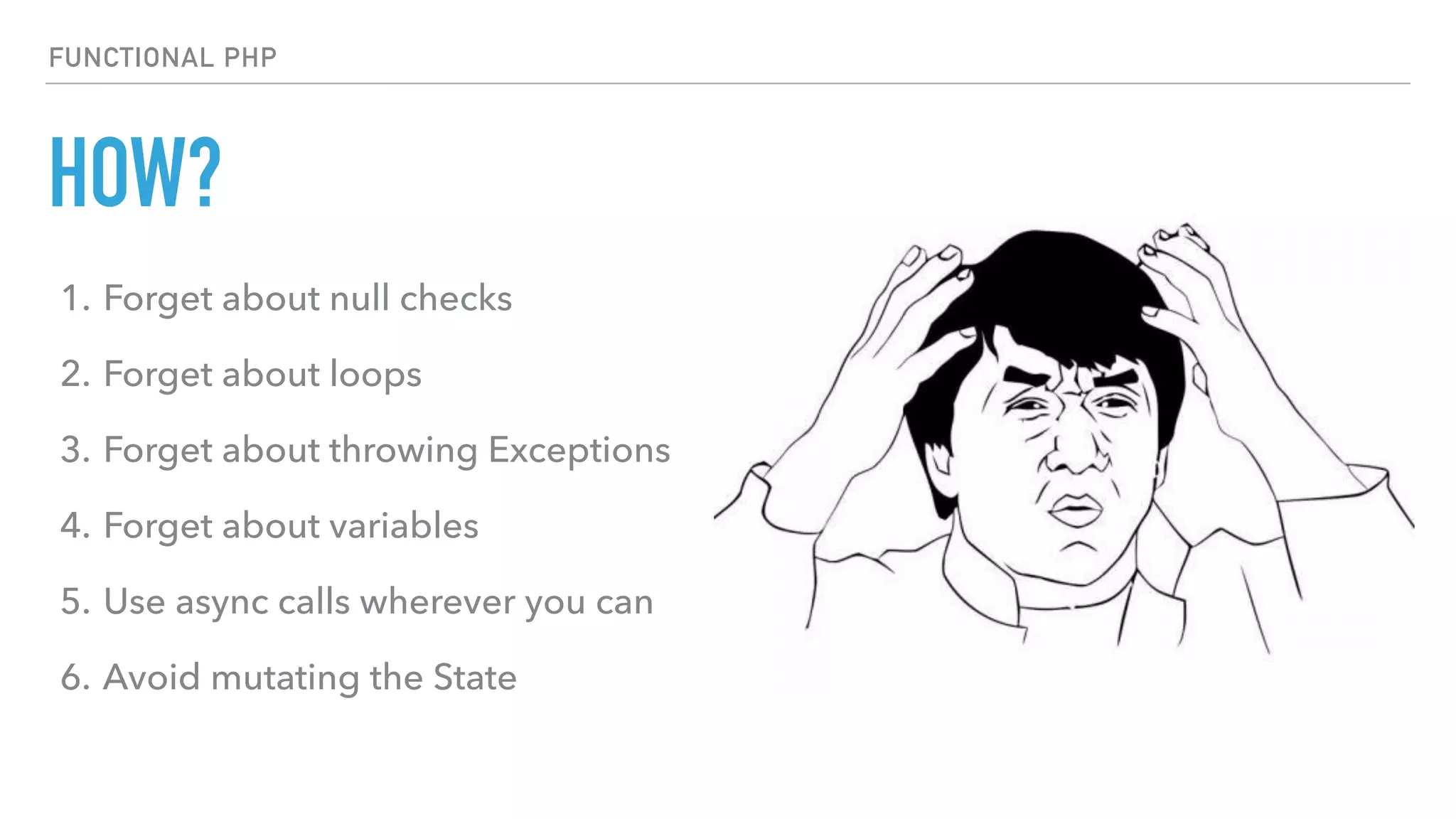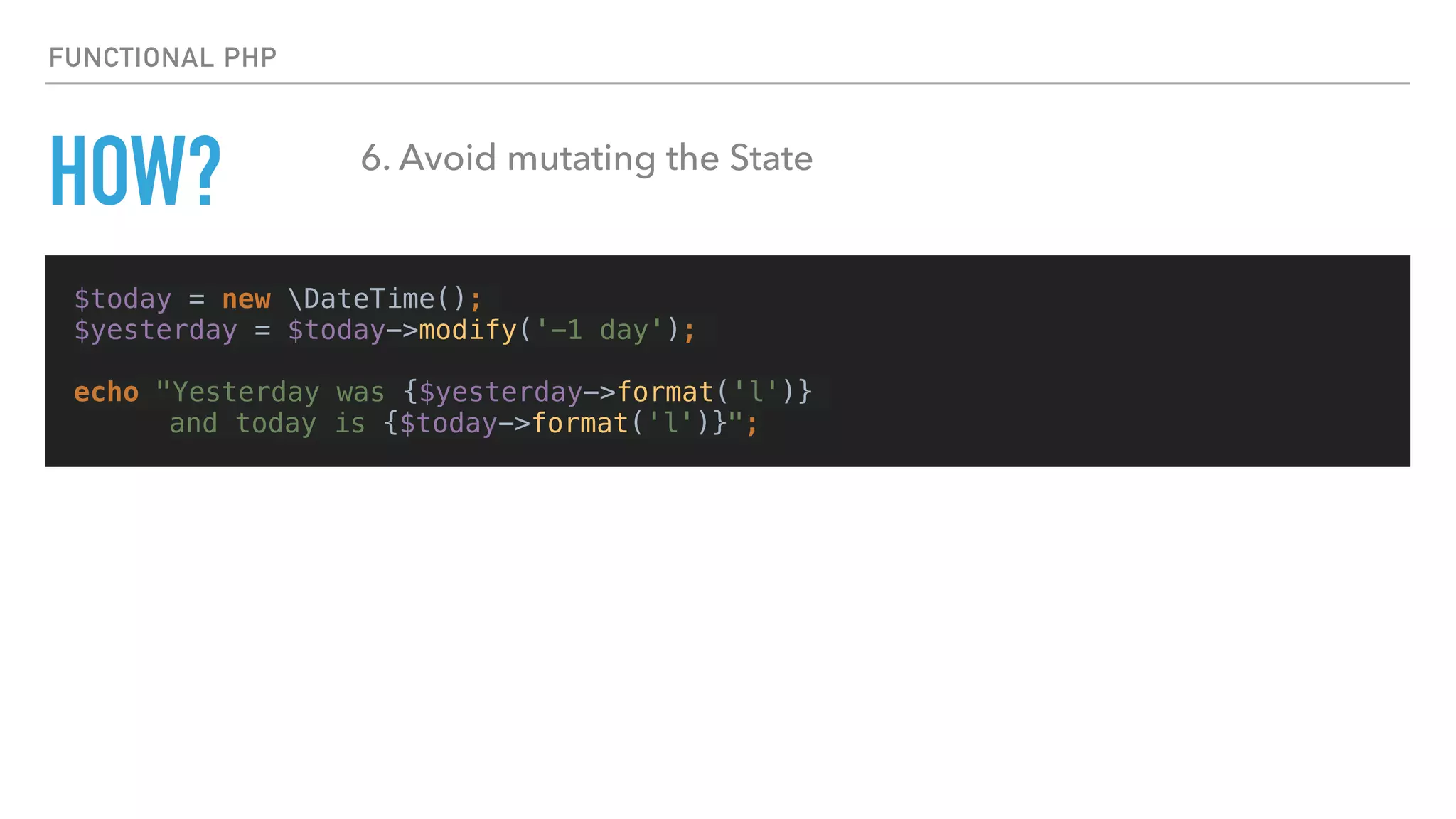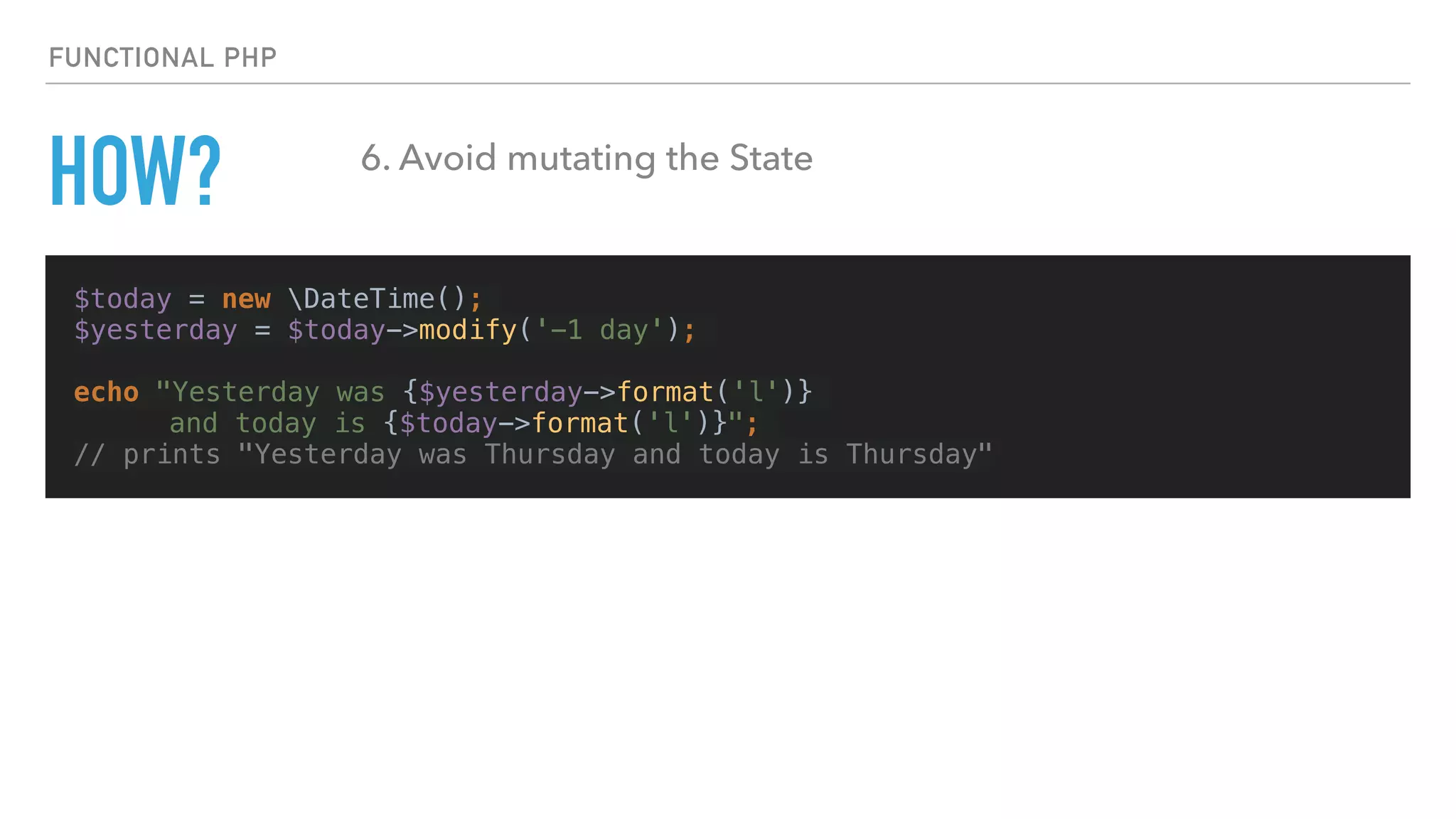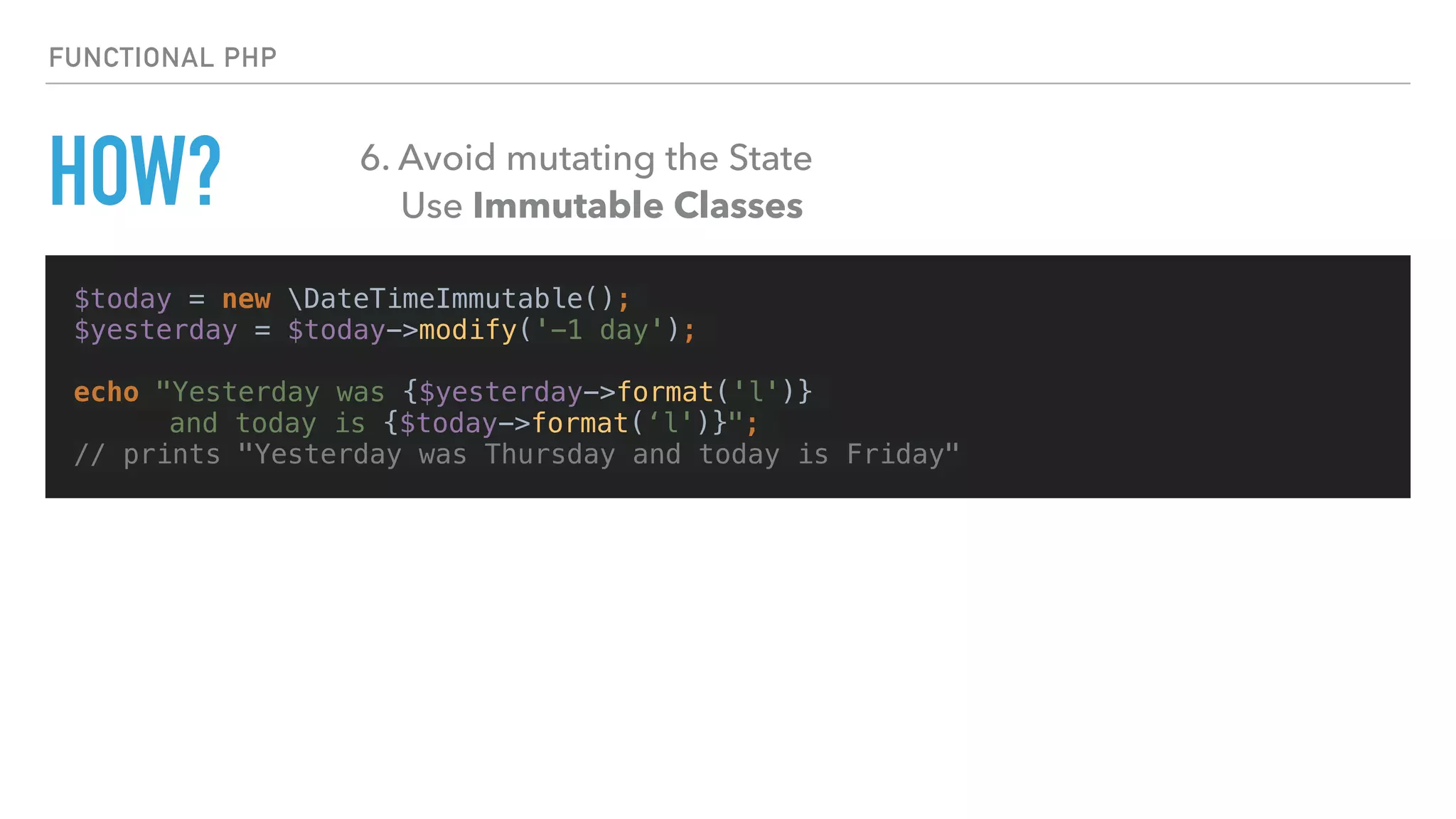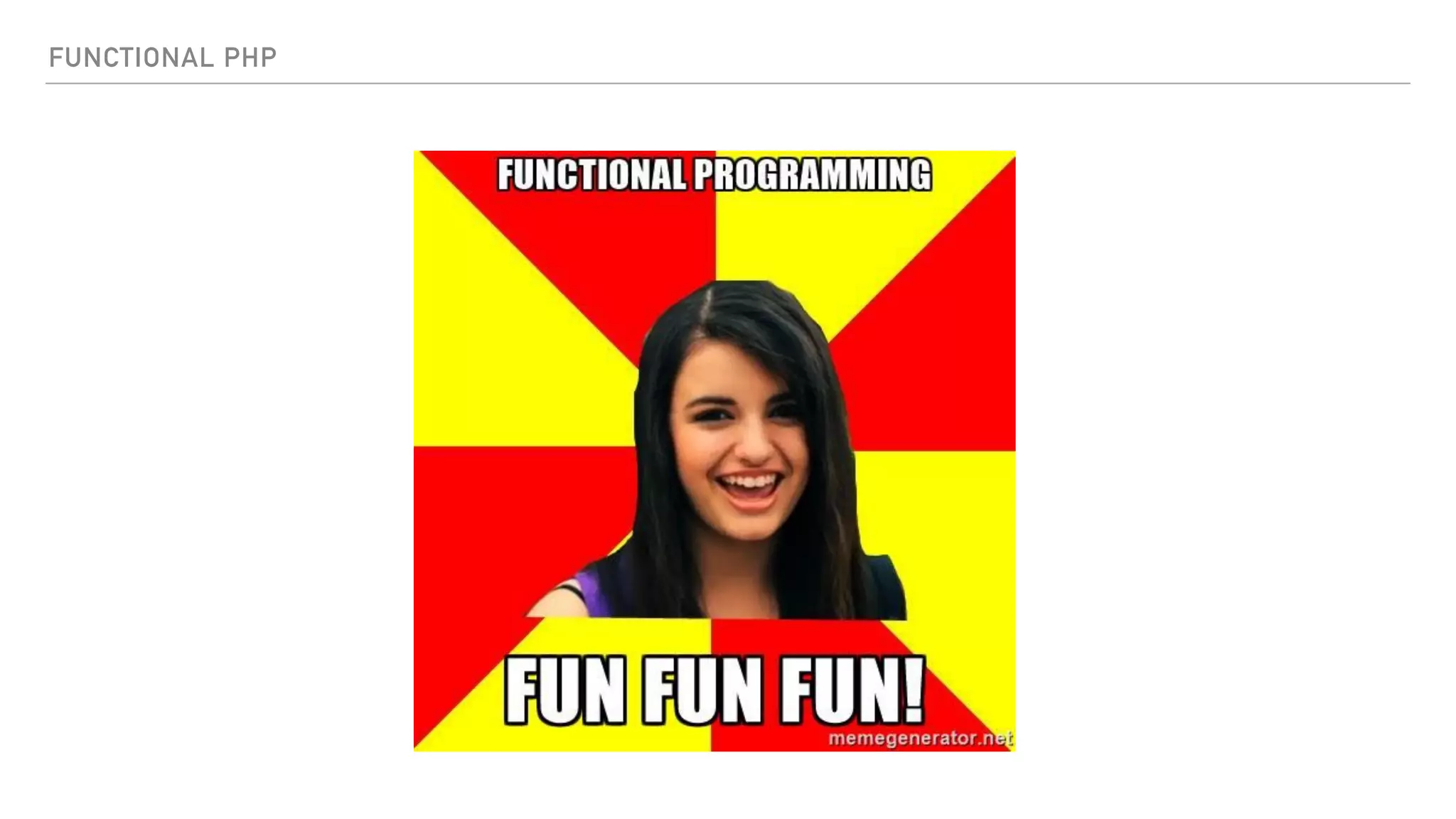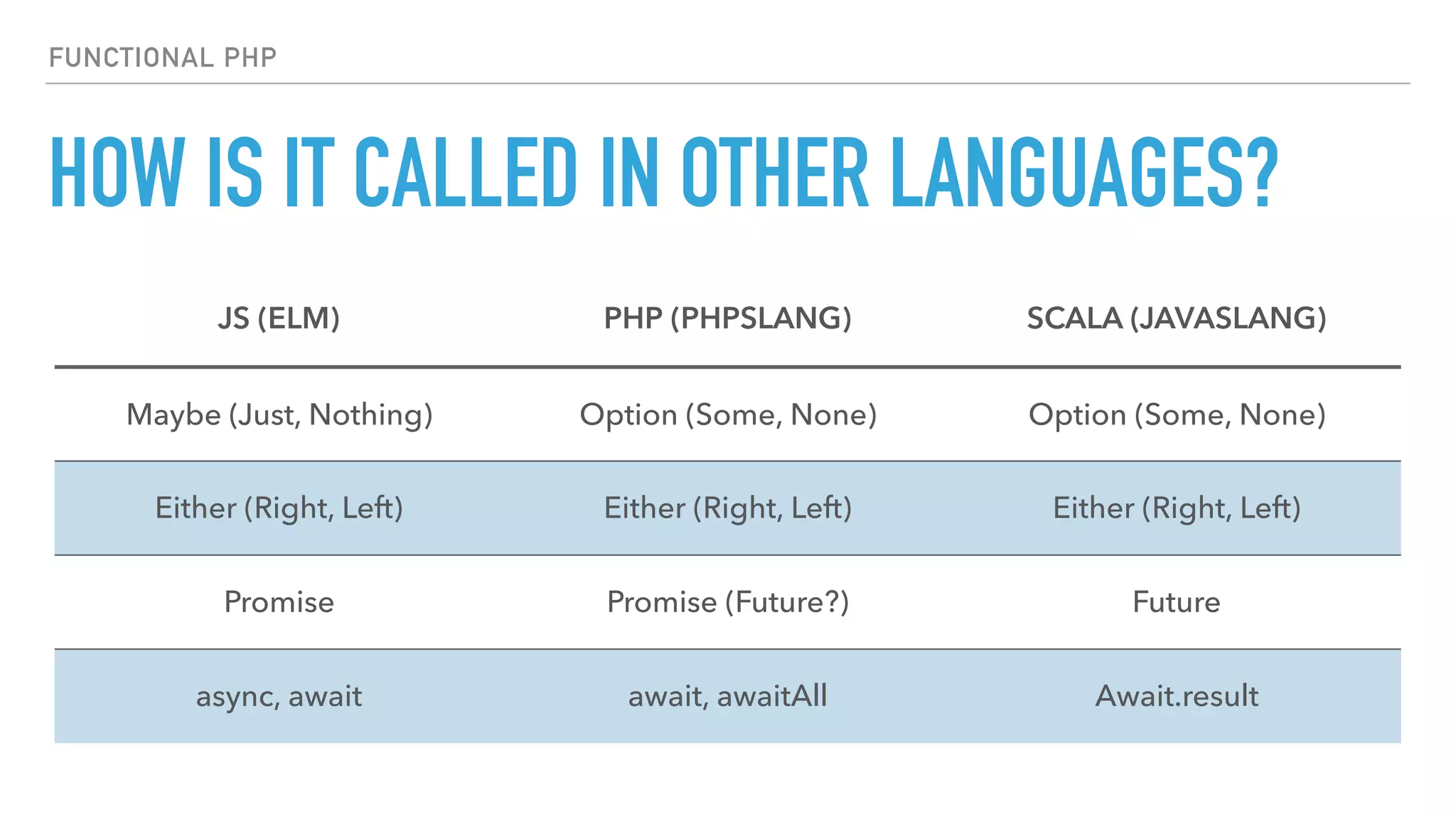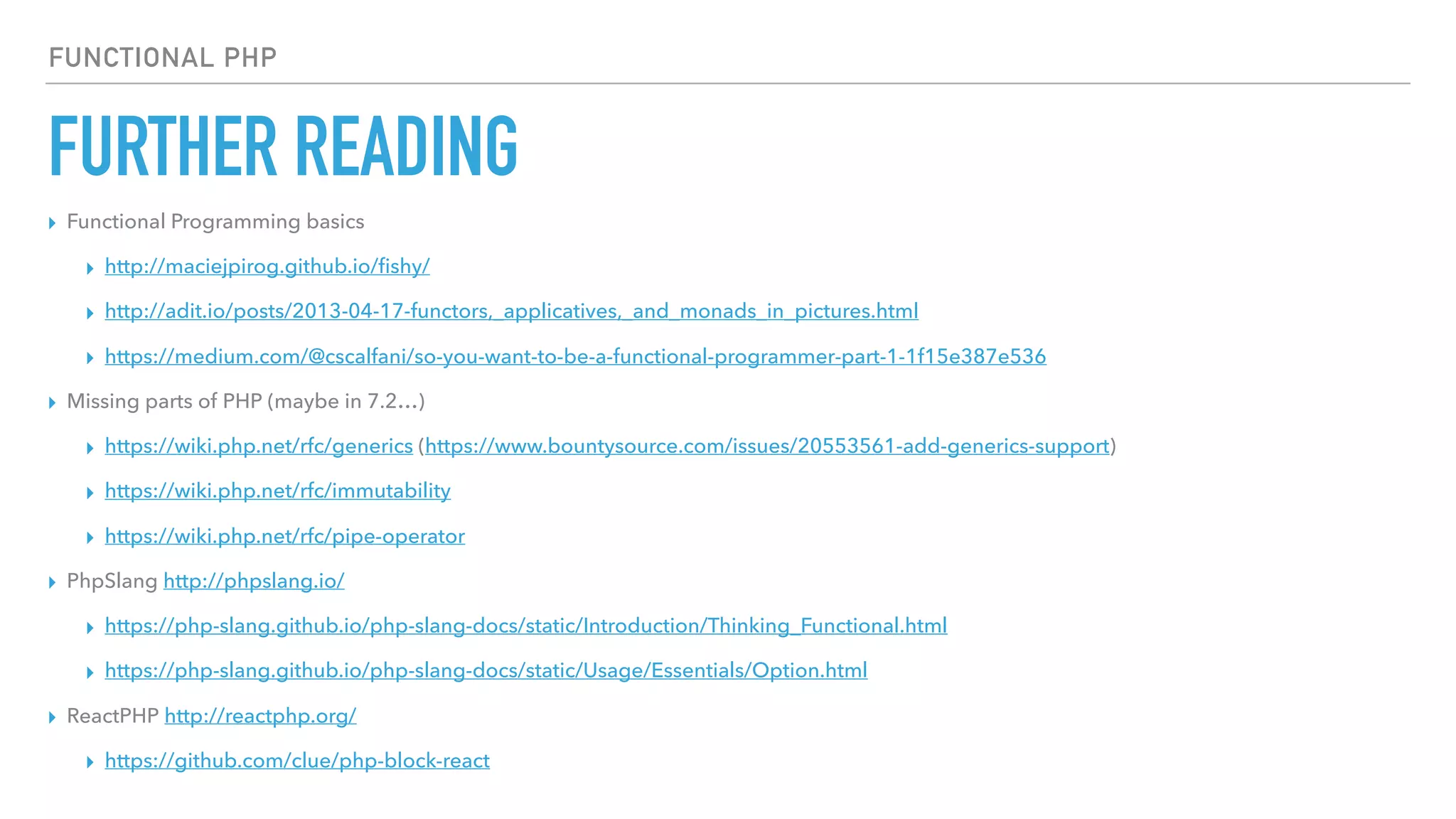The document discusses functional programming concepts in PHP, including functions as first-class citizens, lambdas, closures, generators, and avoiding side effects through immutability. It provides examples of implementing functions as variables, passing functions as arguments, and returning functions. The benefits of functional programming like less errors, method chaining and concurrent code are highlighted, along with some cons like less readability in PHP syntax. Tools to facilitate functional PHP like PhpSlang and ReactPHP are also mentioned.
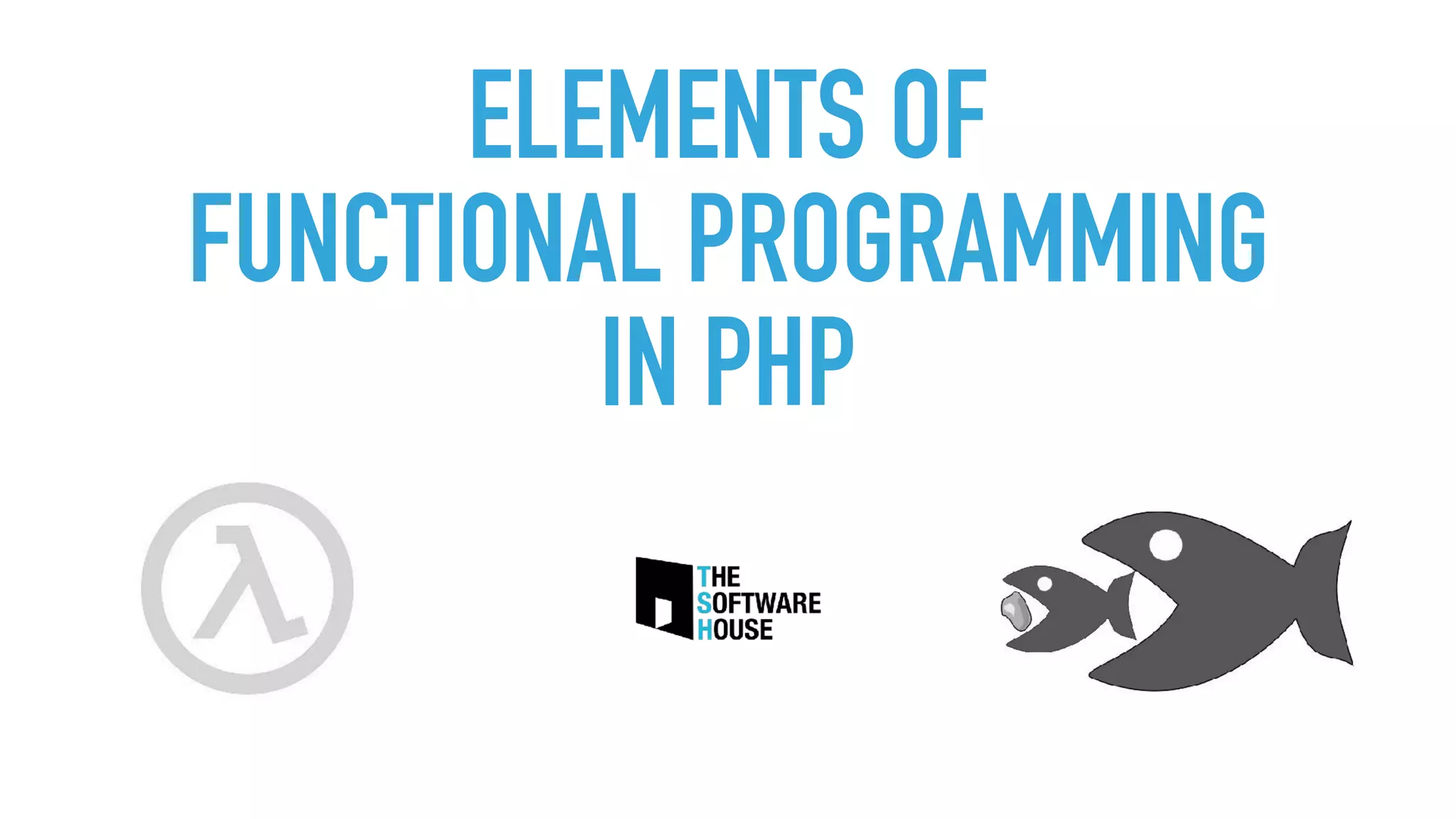

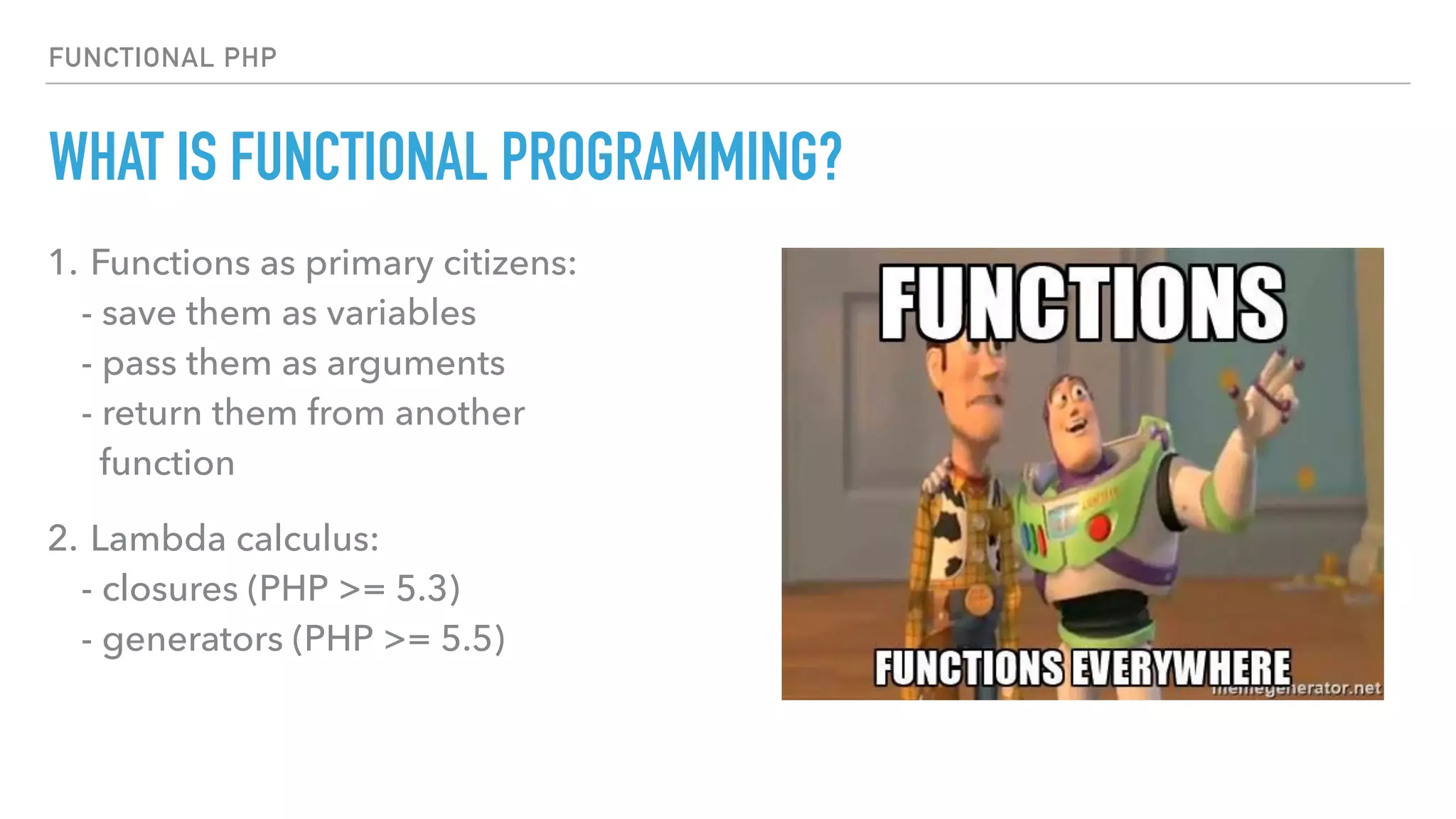
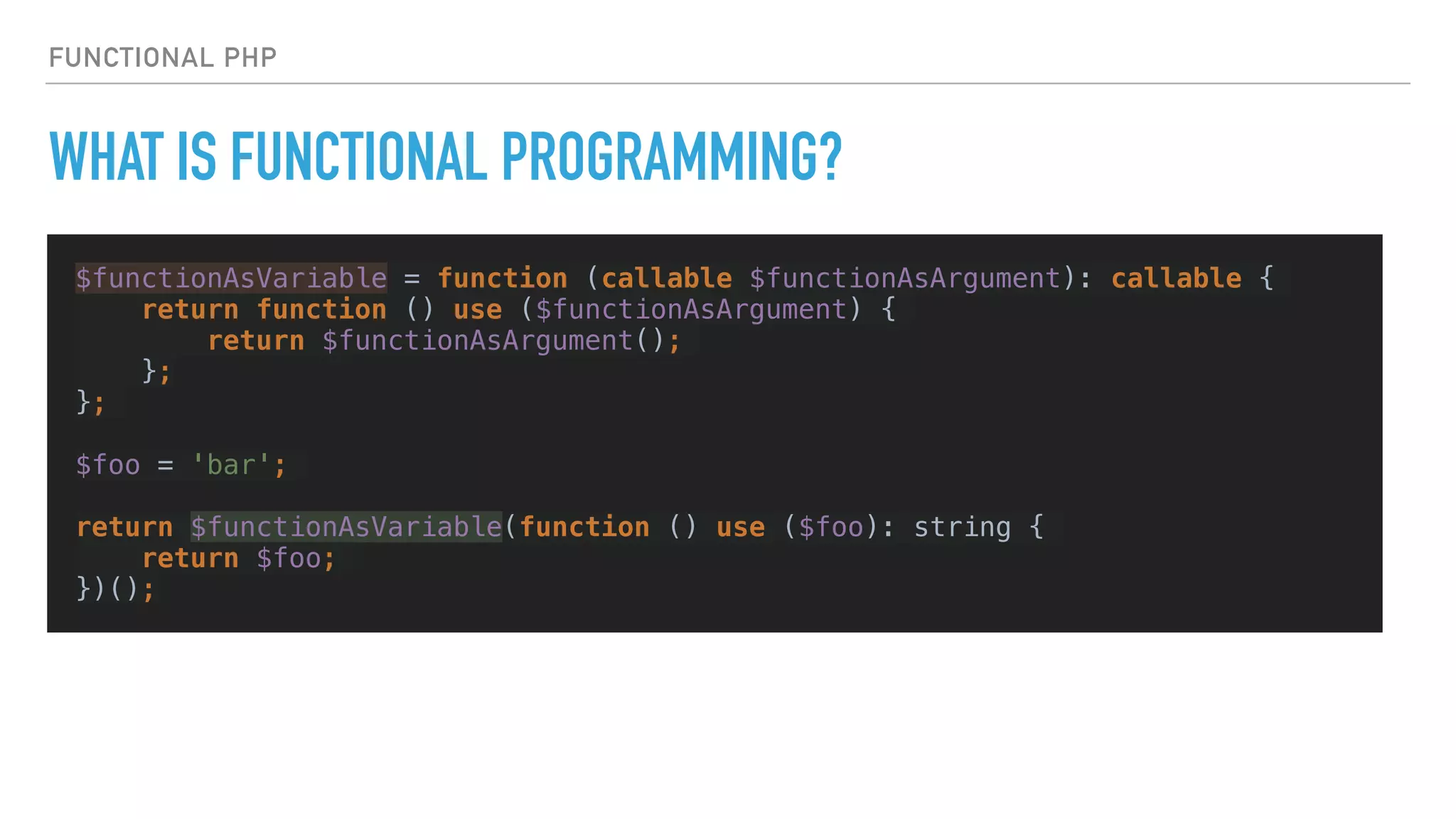
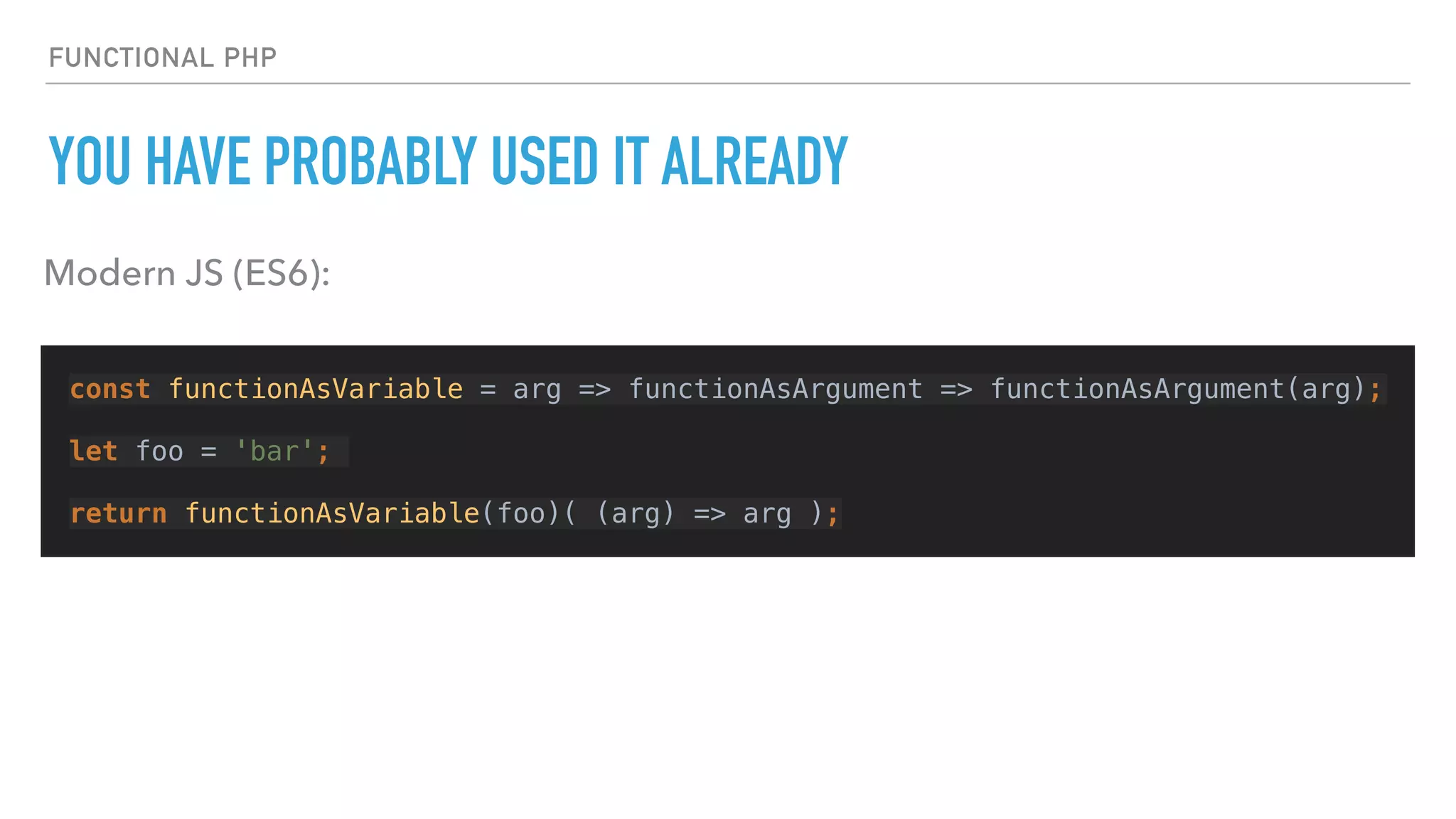
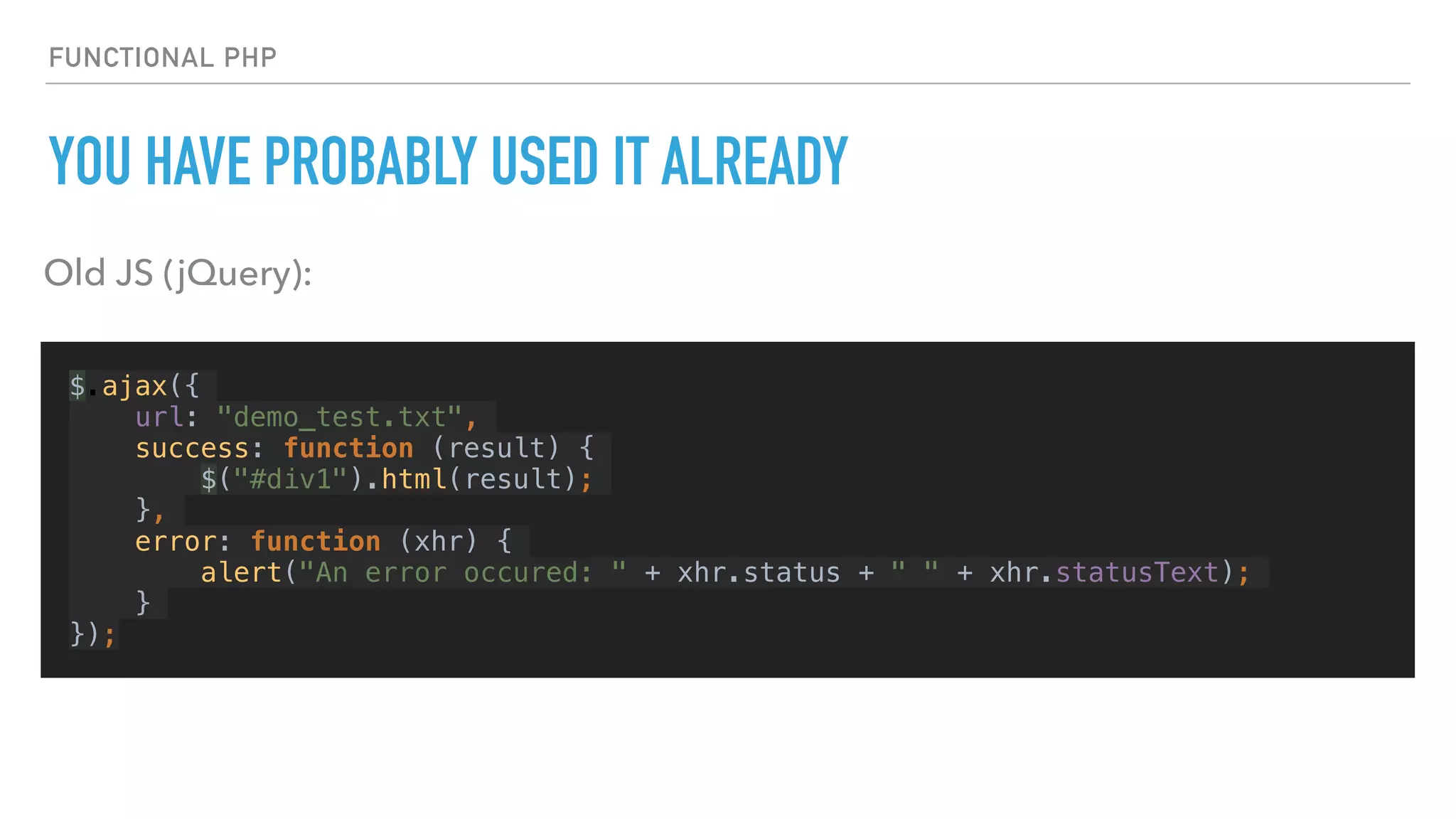
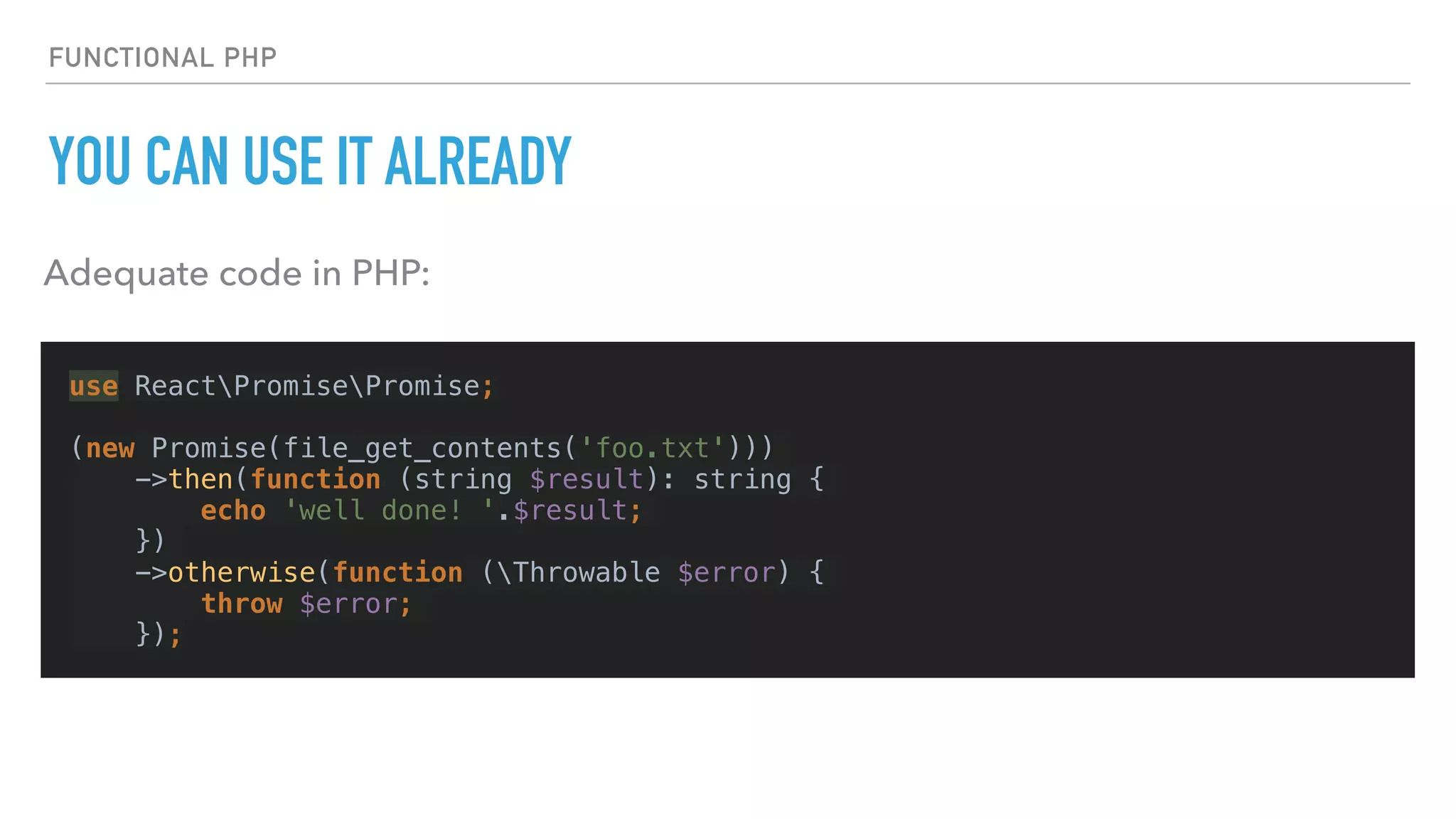
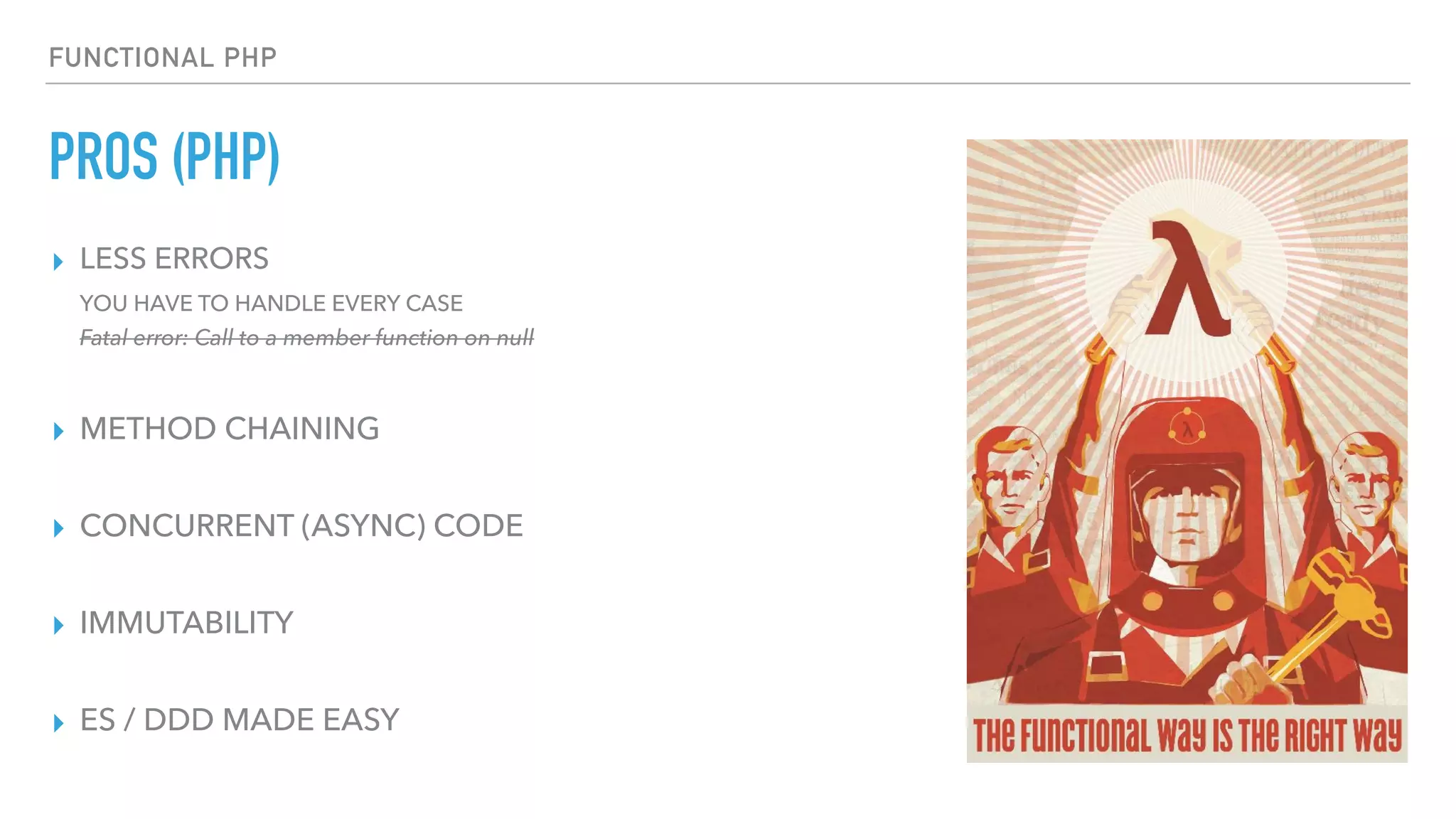
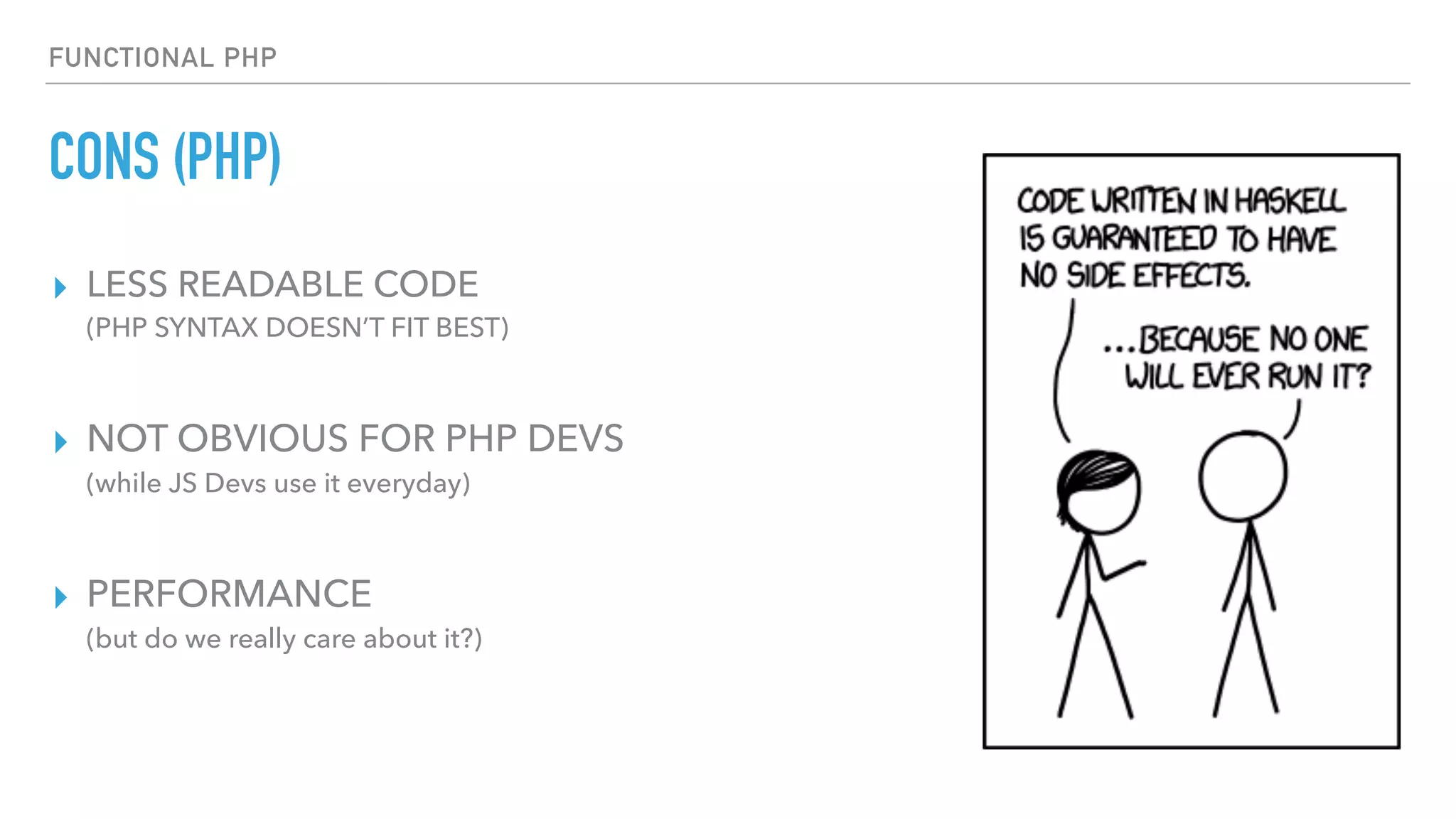
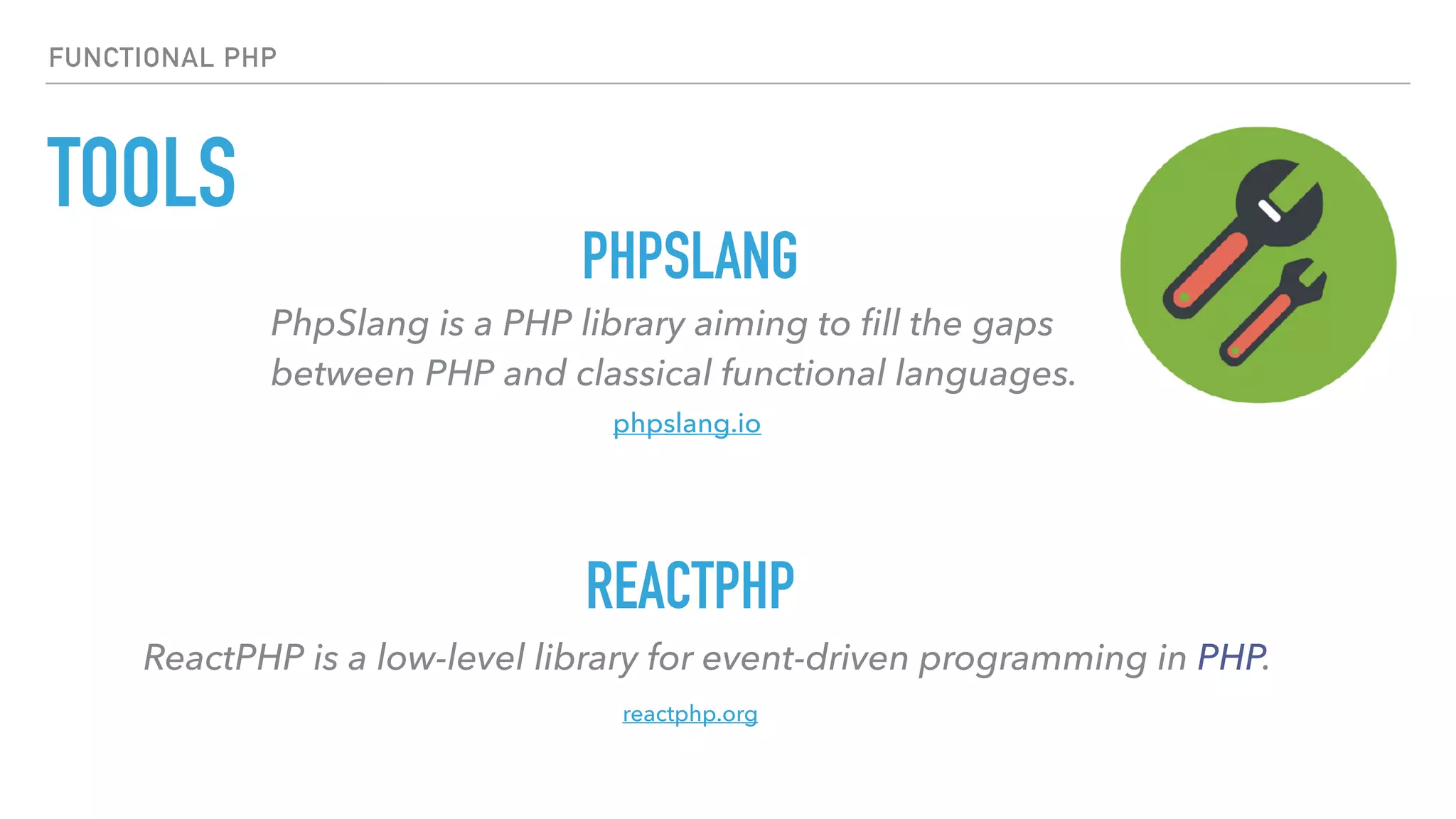
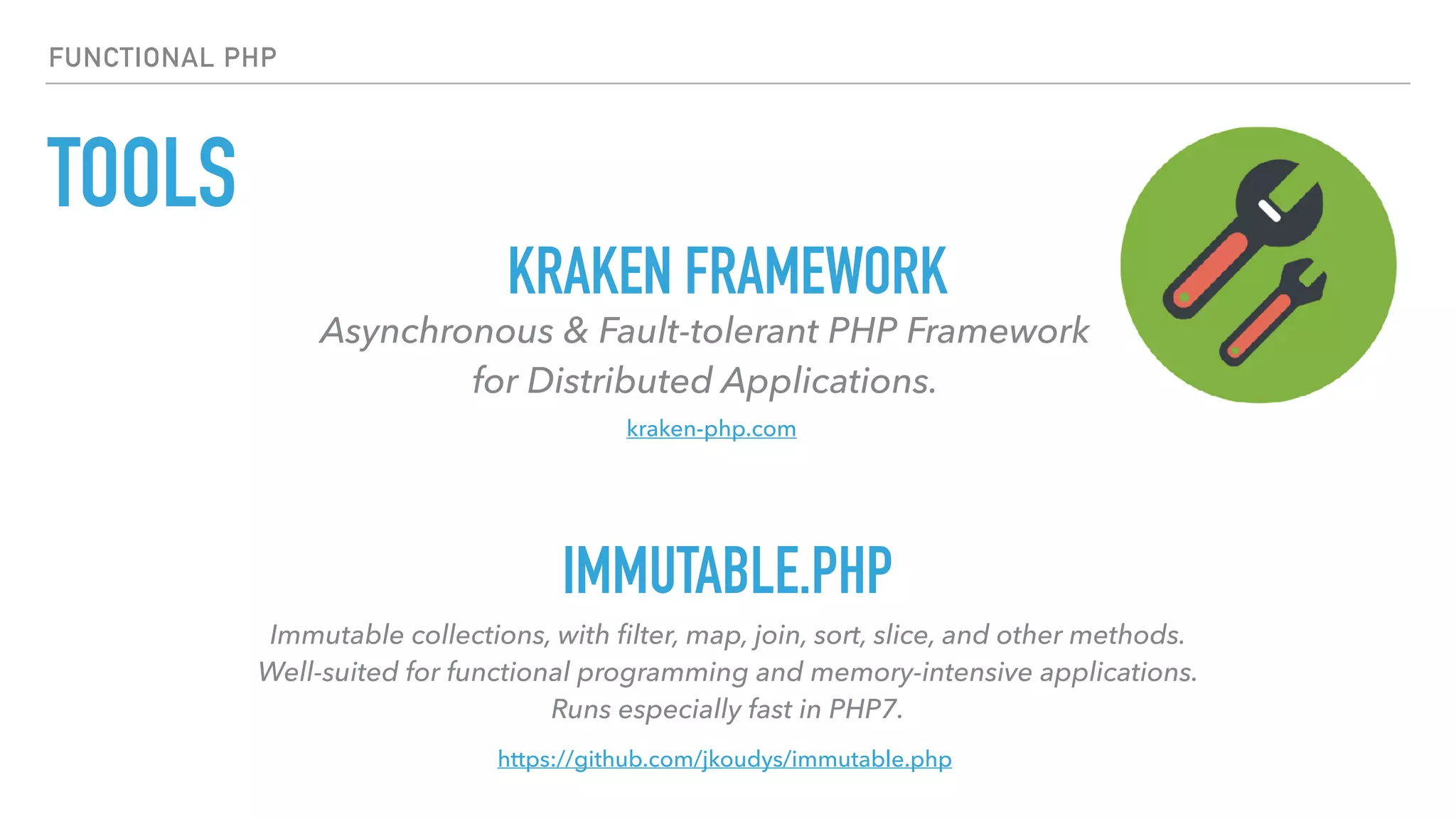
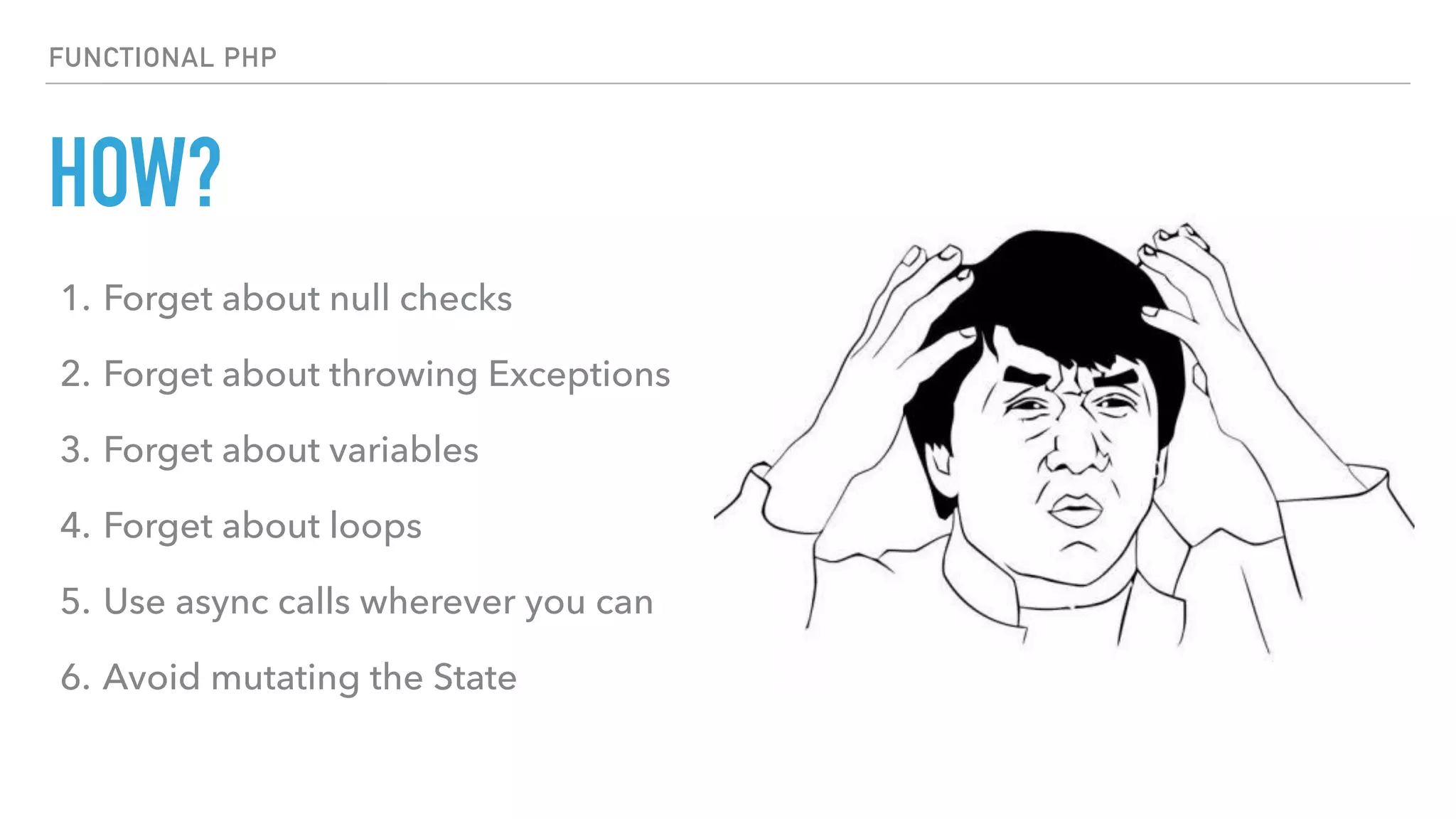

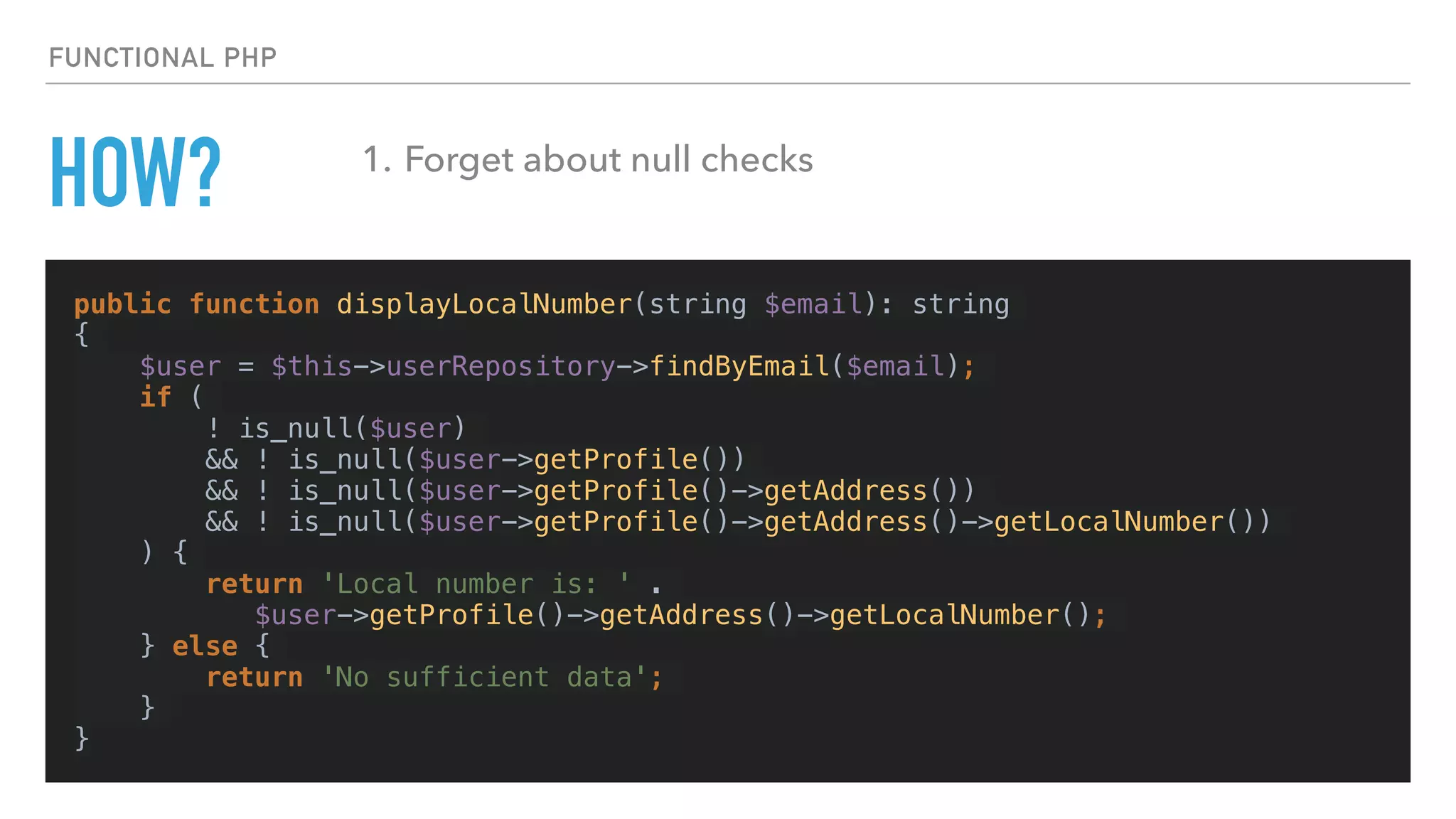
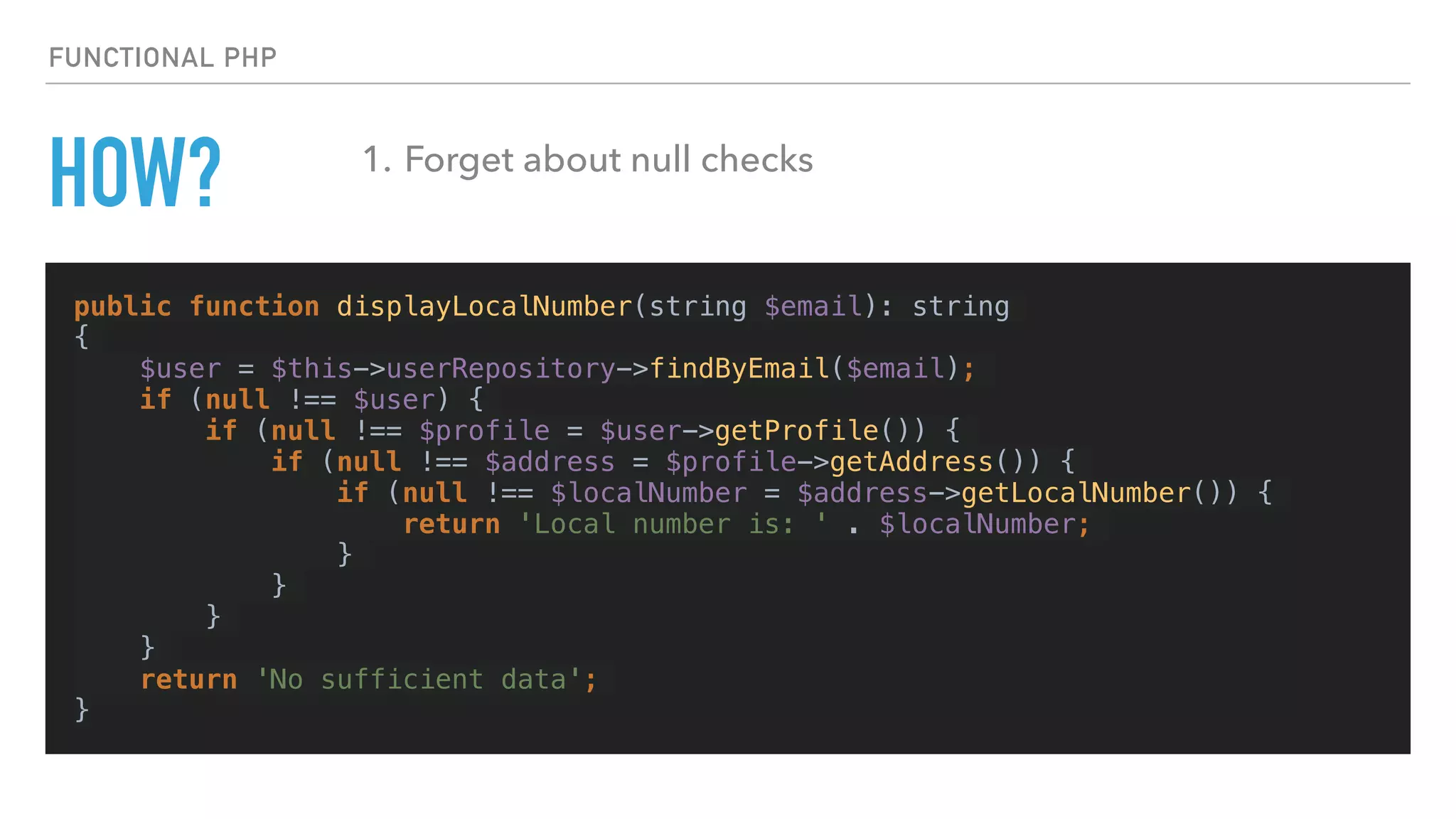
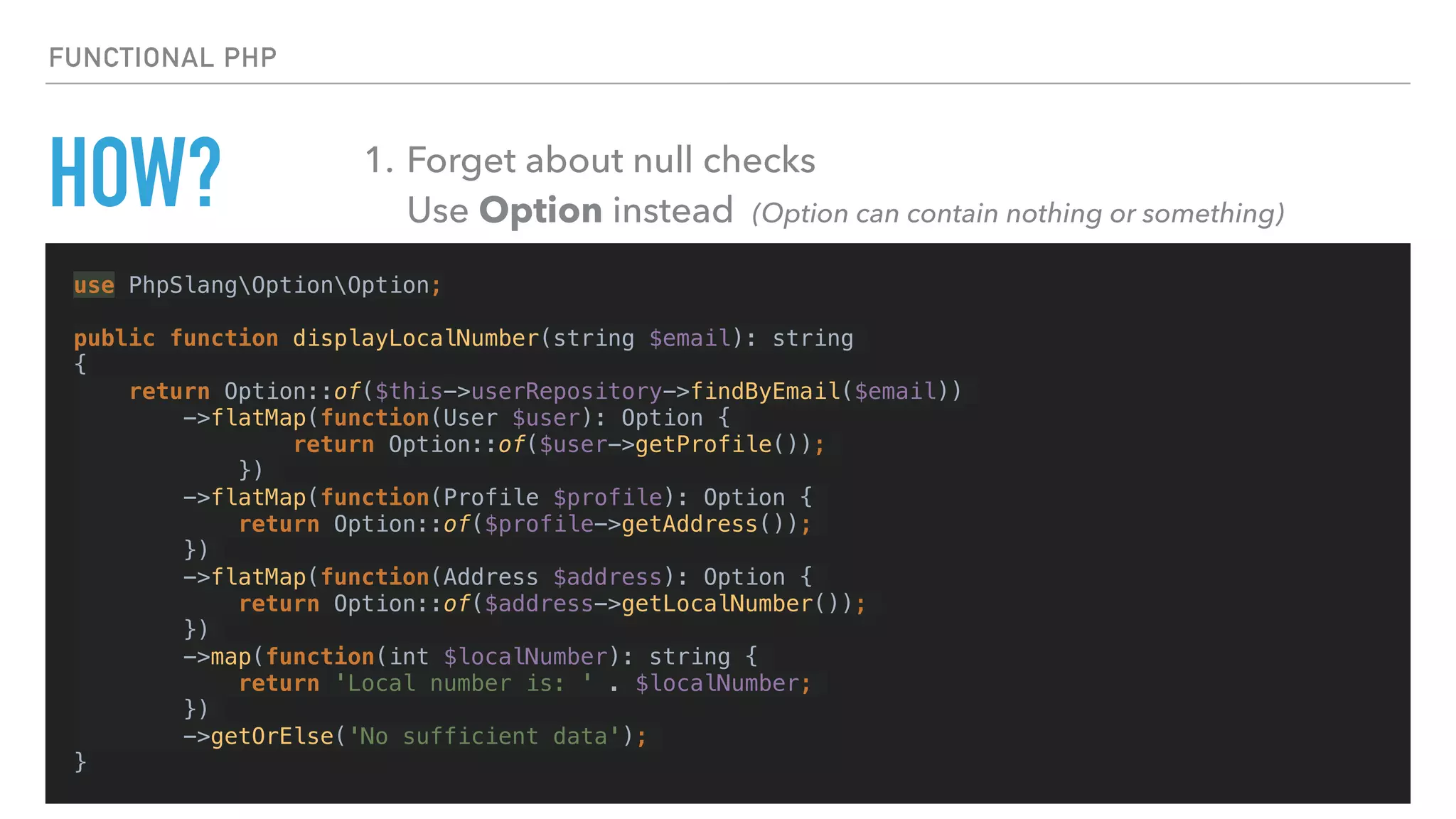
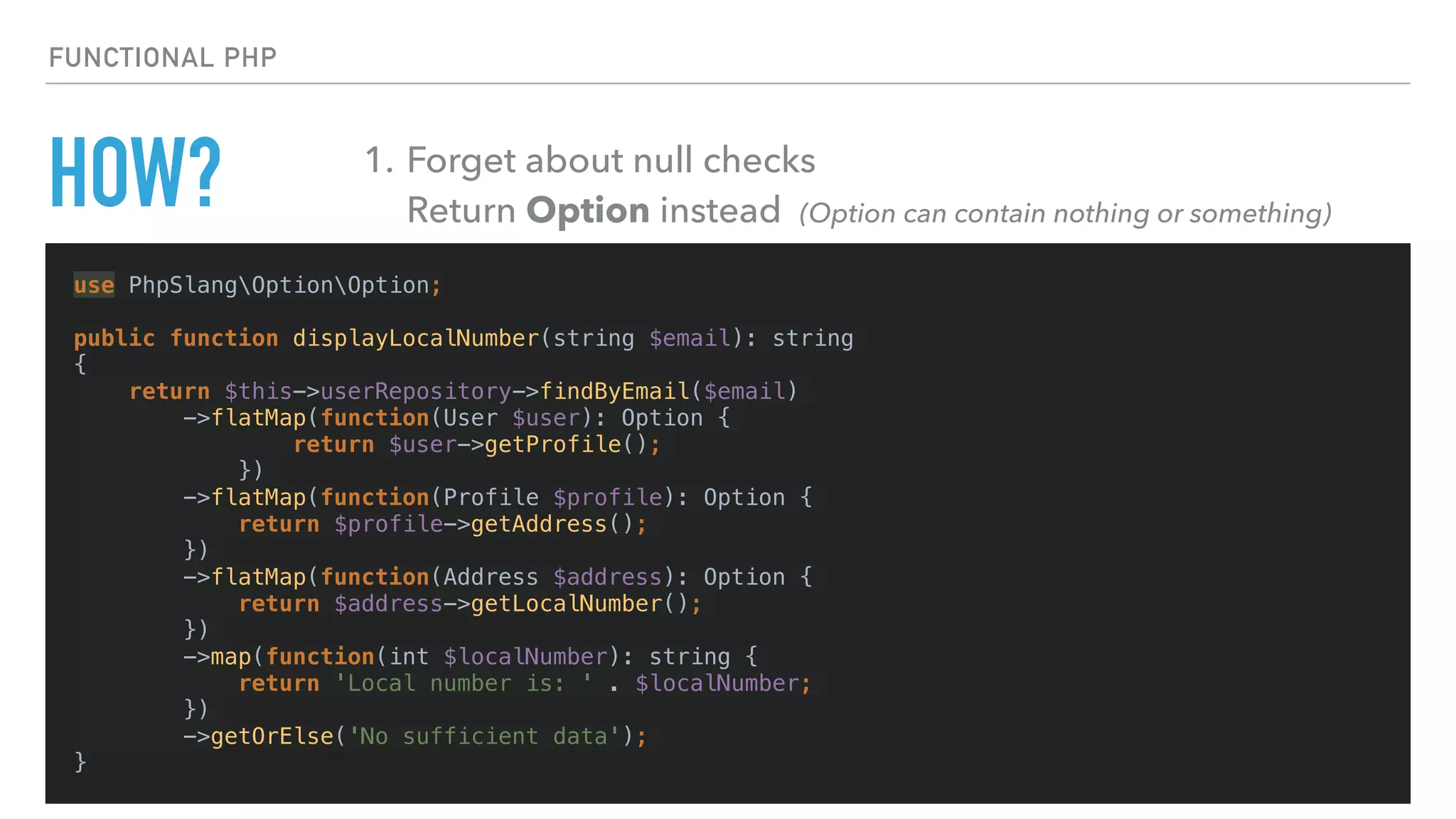
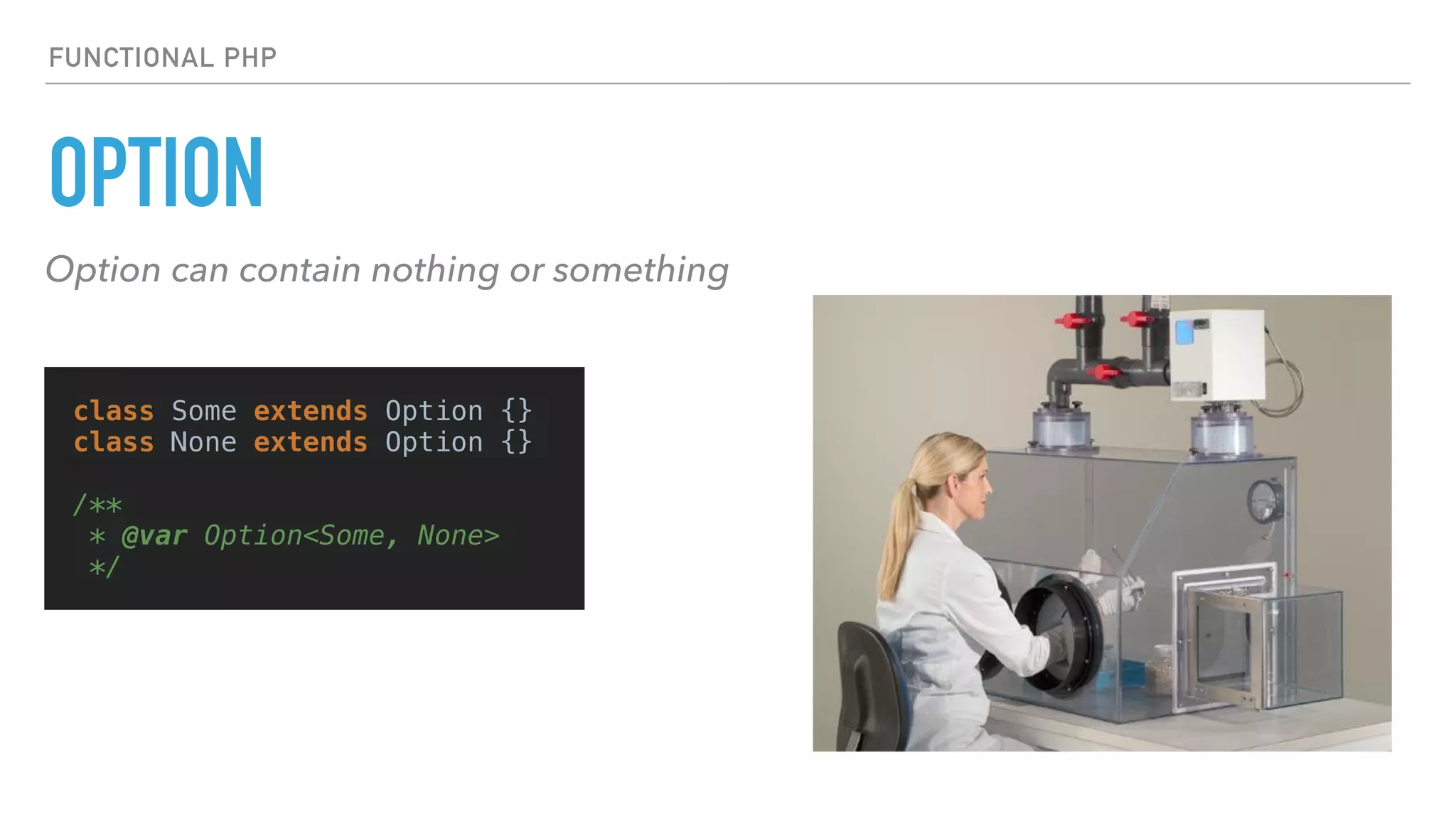
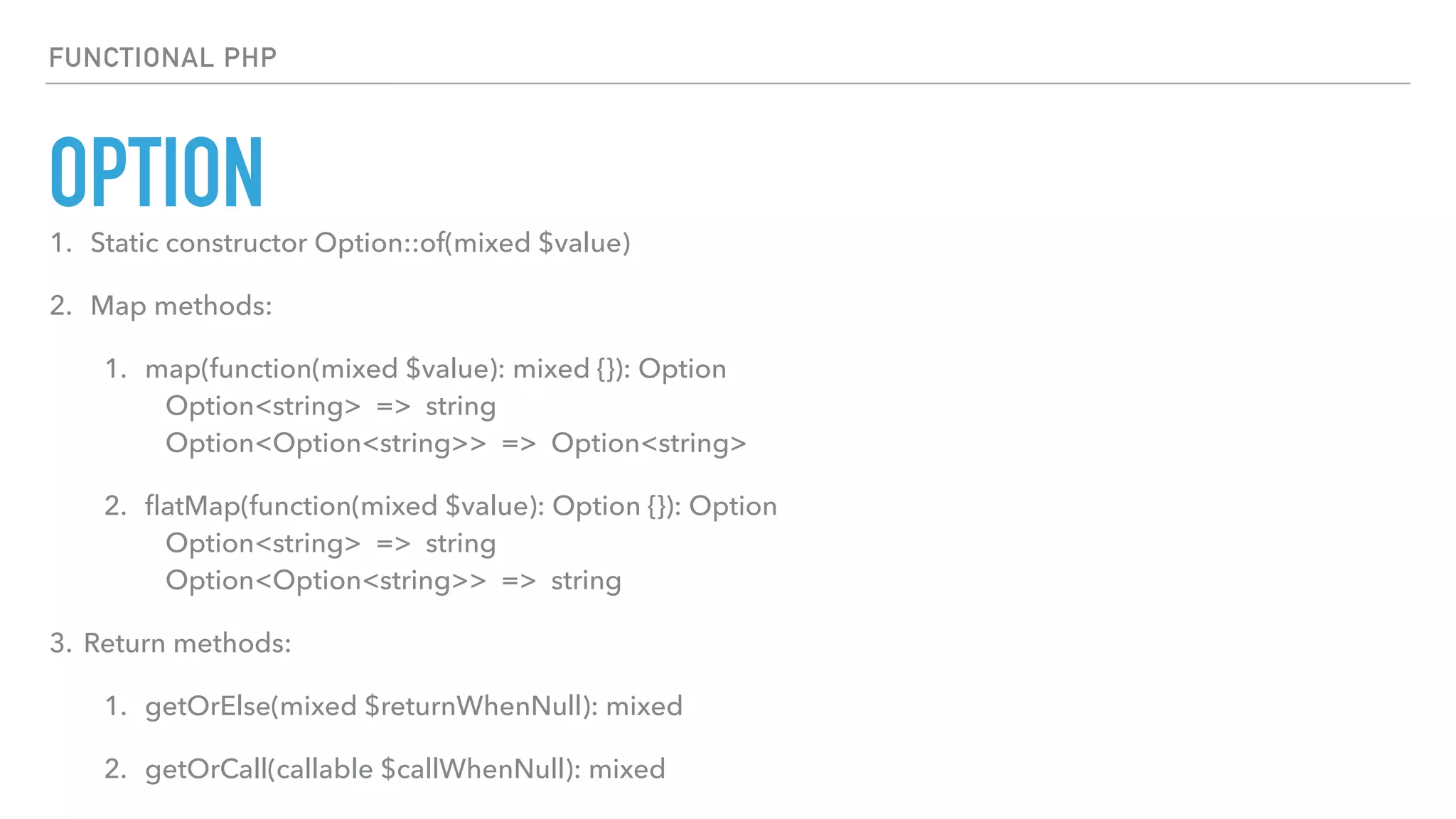
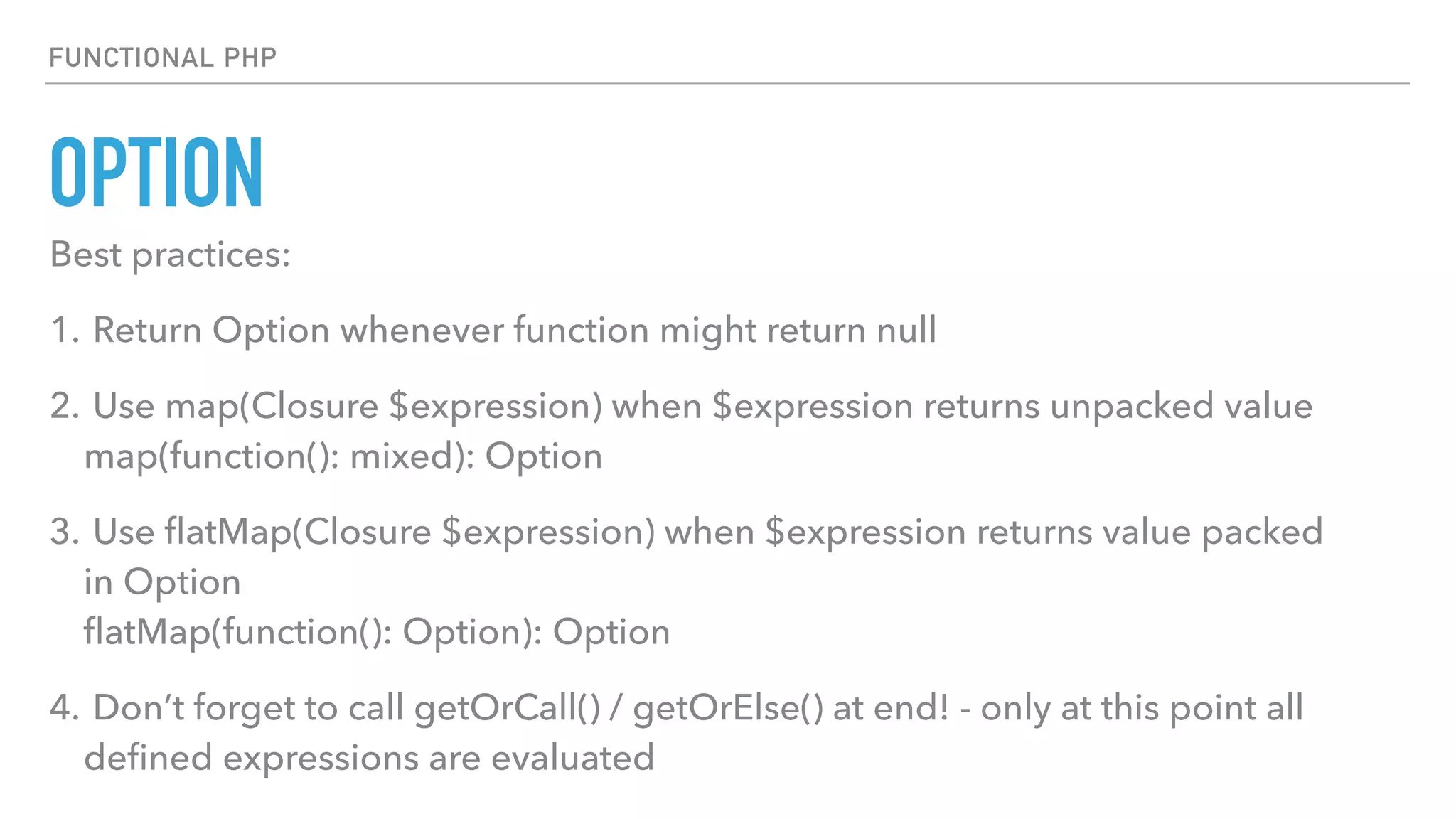
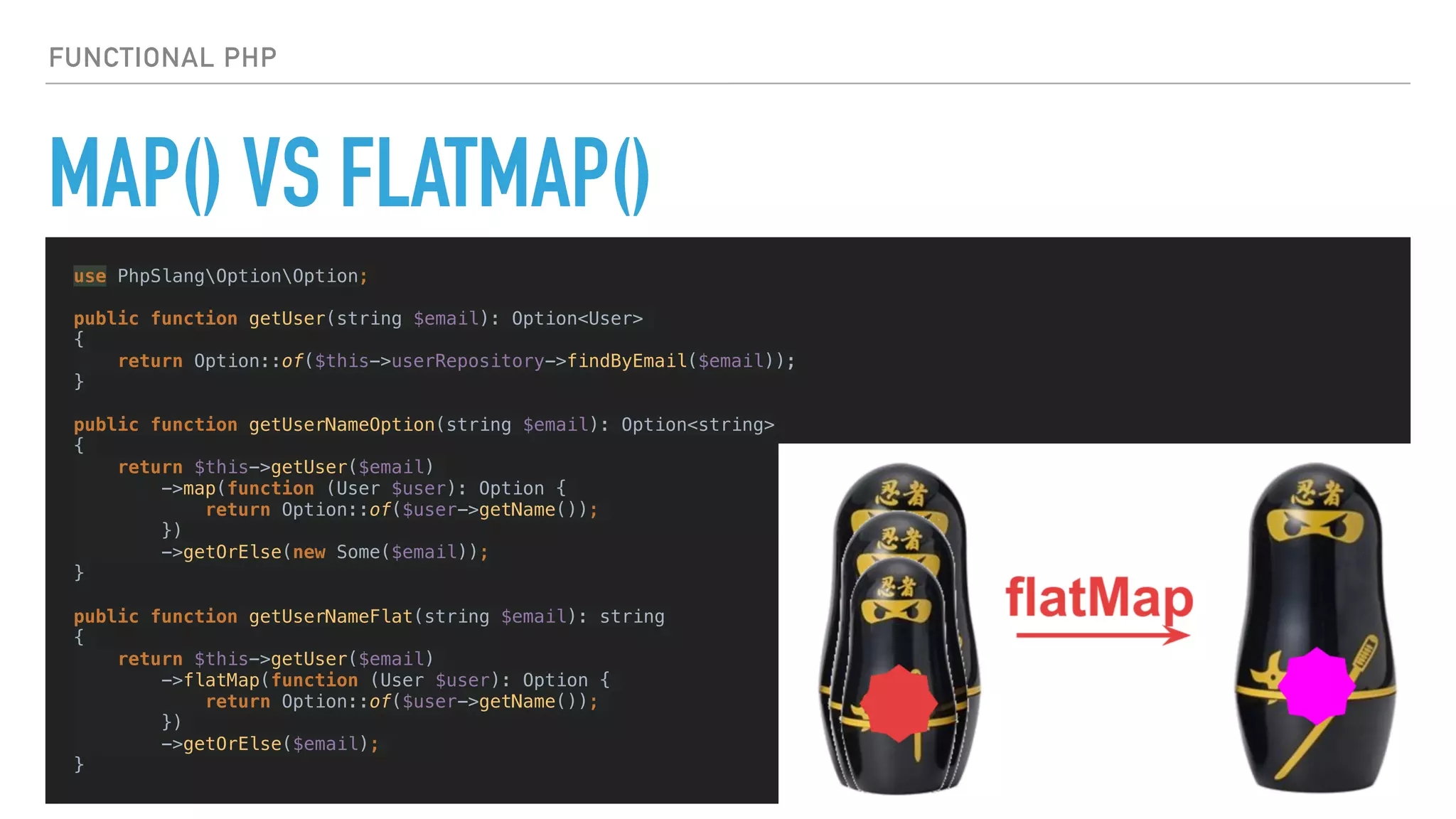
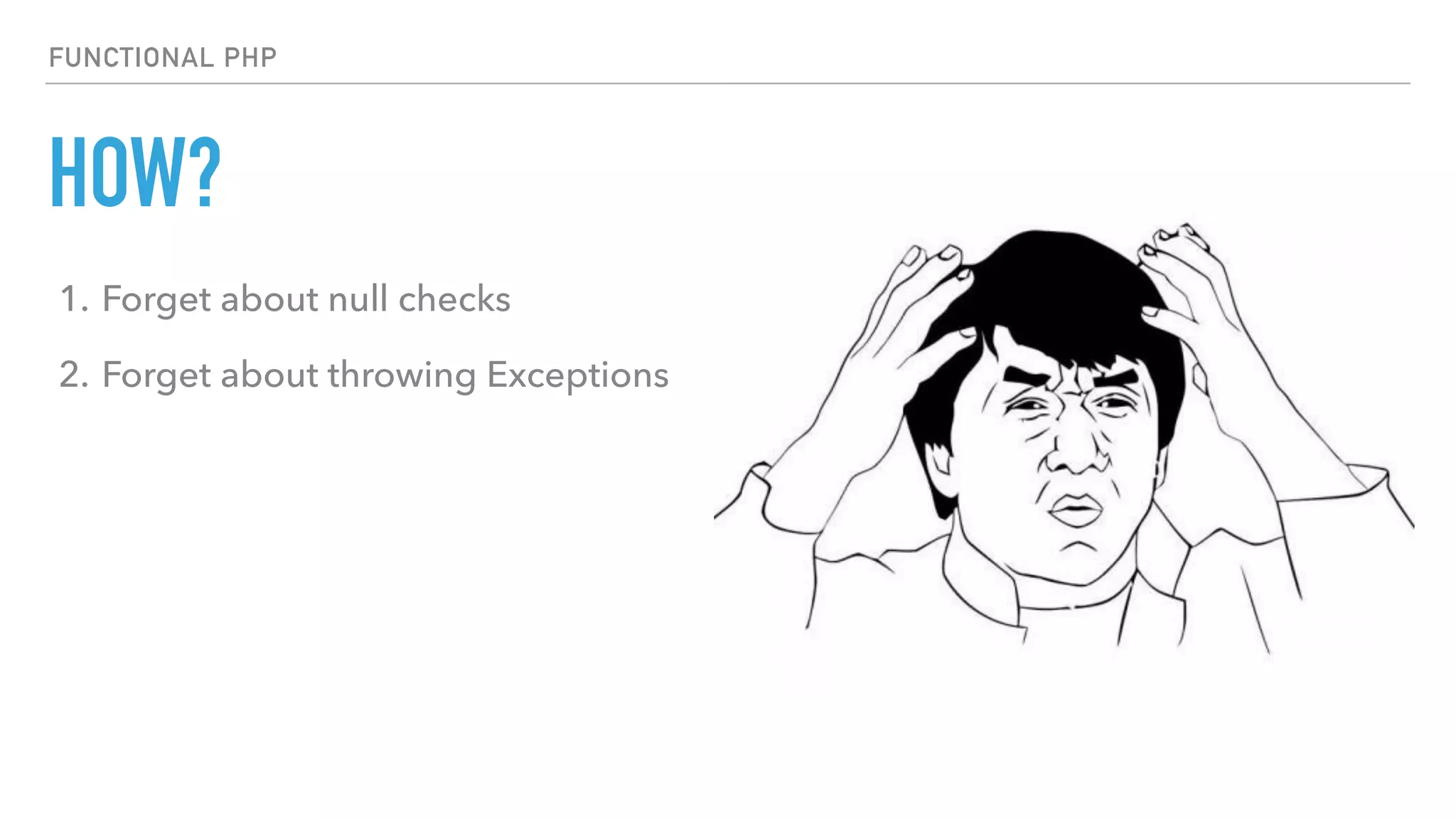
![HOW?
public function getUserName(string $email): ?string
{
try {
return $this->findUser($email)->getName();
} catch (InvalidArgumentException $e) {
return null;
}
}
private function findUser(string $email): User
{
$user = $this->userRepository->findBy(['email' => $email]);
if (!$user instanceof User) {
throw new InvalidArgumentException('User not found.');
}
return $user;
}
FUNCTIONAL PHP
2. Forget about throwing Exceptions](https://image.slidesharecdn.com/functional-php-170704125315/75/Elements-of-Functional-Programming-in-PHP-23-2048.jpg)
![HOW?
public function getUserName(string $email): ?string
{
try {
return $this->findUser($email)->getName();
} catch (InvalidArgumentException $e) {
return null;
}
}
private function findUser(string $email): User
{
$user = $this->userRepository->findBy(['email' => $email]);
if (!$user instanceof User) {
throw new InvalidArgumentException('User not found.');
}
return $user;
}
FUNCTIONAL PHP 2. Forget about throwing Exceptions](https://image.slidesharecdn.com/functional-php-170704125315/75/Elements-of-Functional-Programming-in-PHP-24-2048.jpg)
![HOW?
public function getUserName(string $email): Option
{
return $this->findUser($email)
->right(function (User $user): Some {
return new Some($user->getName());
})
->left(function (): None {
return new None();
})
->get();
}
private function findUser(string $email): Either
{
return Option::of($this->userRepository->findBy(['email' => $email]))
->map(function (User $user) {
return new Right($user);
})
->getOrElse(function () {
return new Left('User not found.');
});
}
FUNCTIONAL PHP 2. Forget about throwing Exceptions: Use Either instead](https://image.slidesharecdn.com/functional-php-170704125315/75/Elements-of-Functional-Programming-in-PHP-25-2048.jpg)
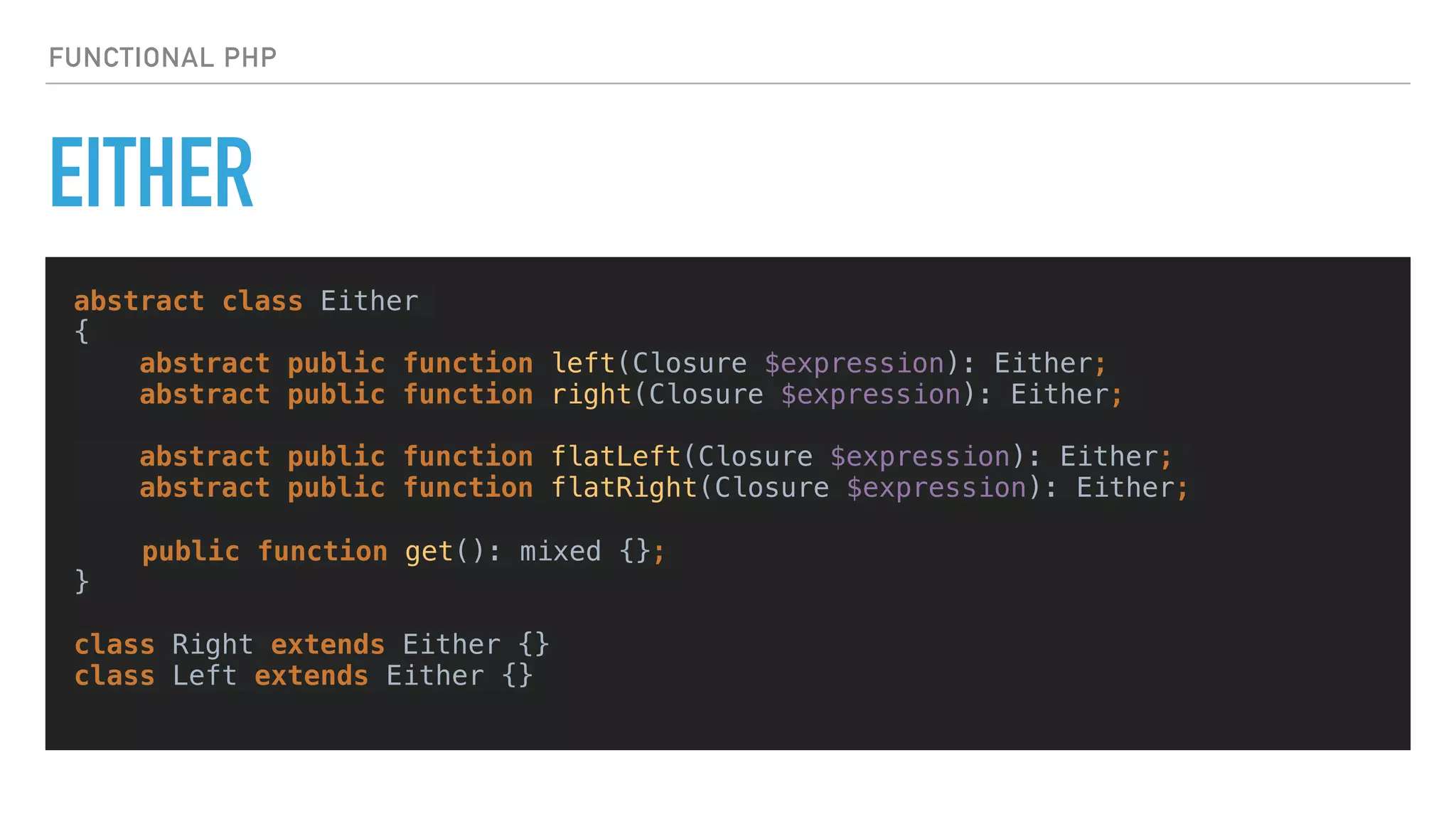
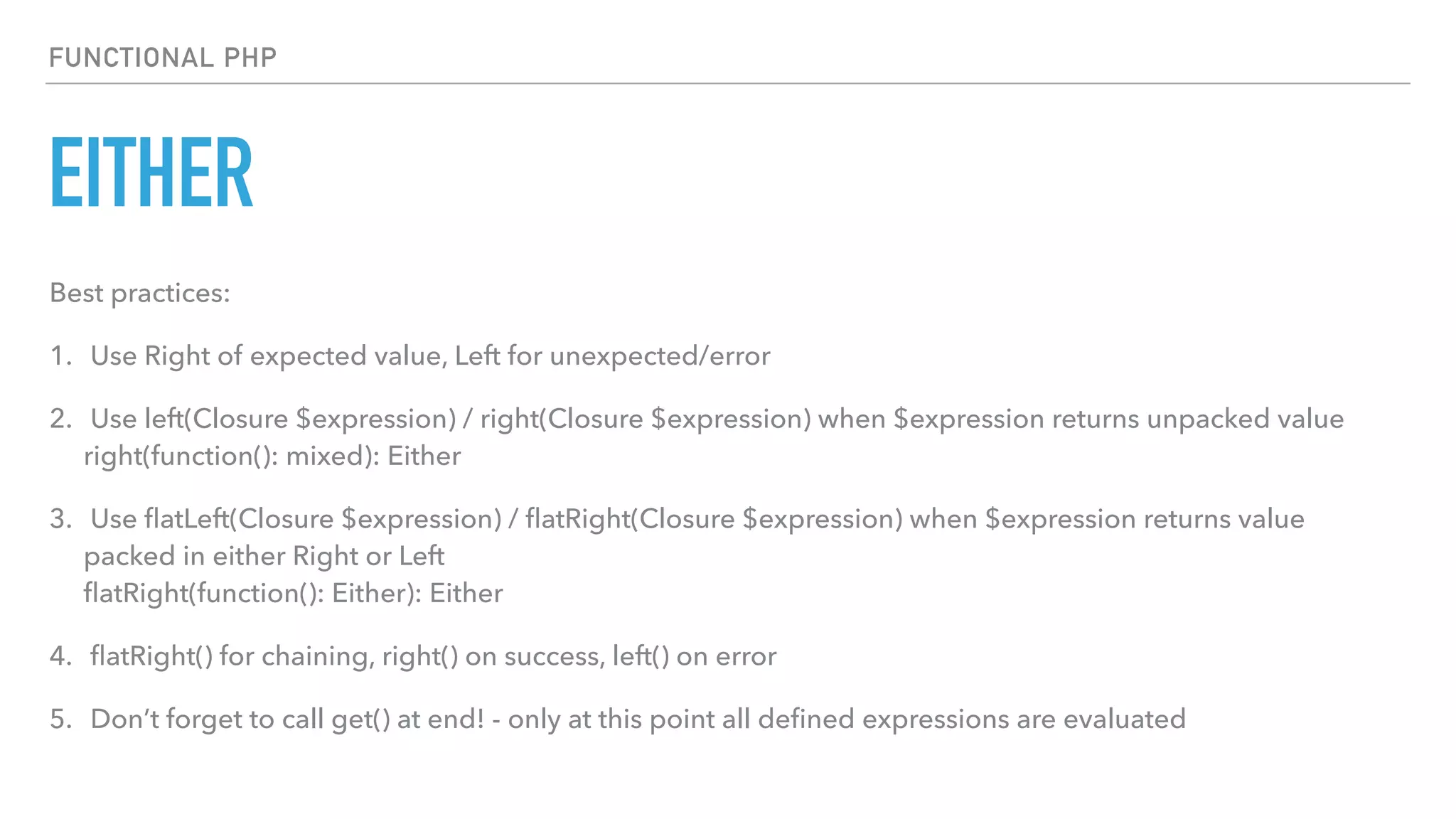
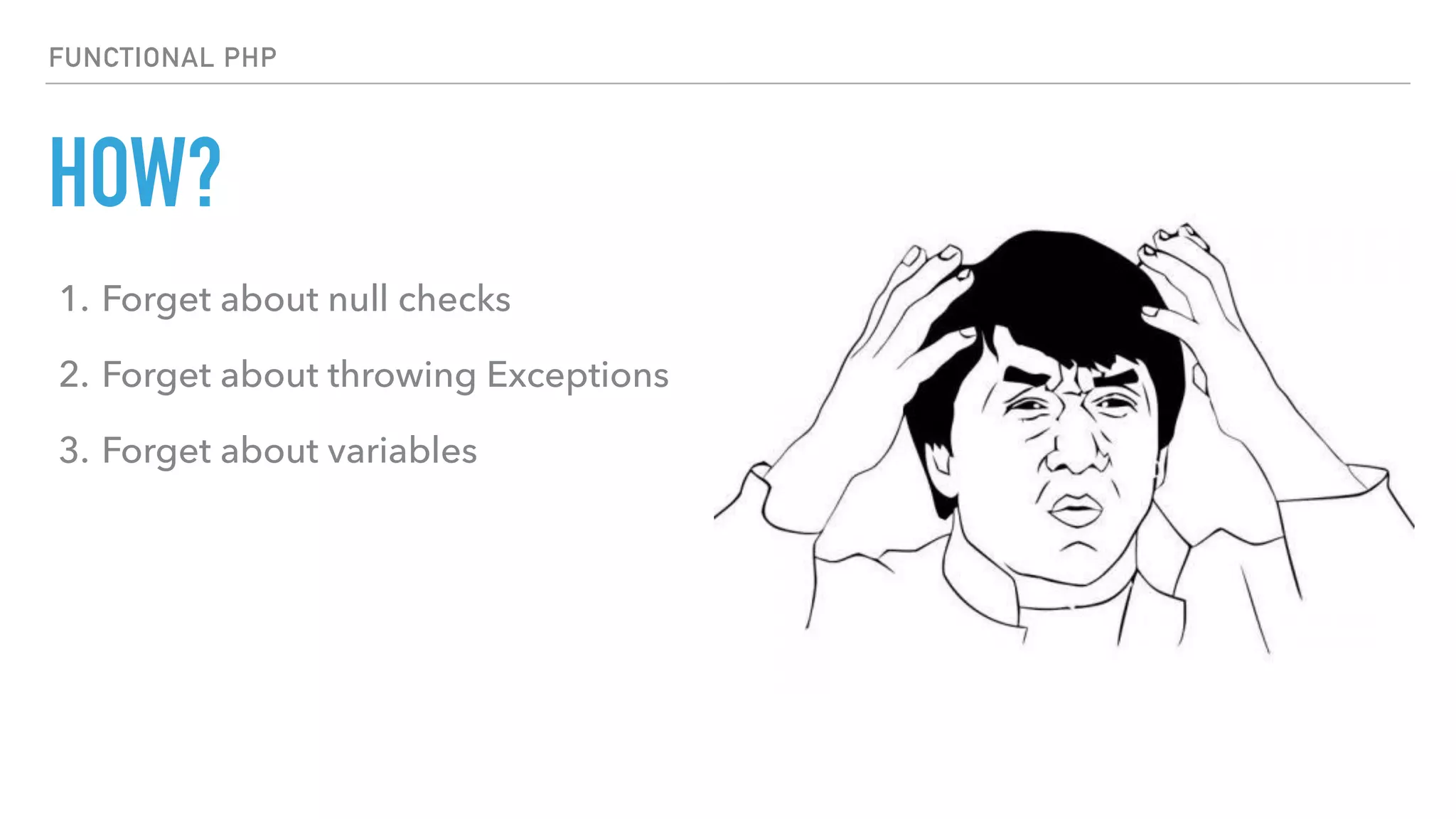
![HOW?
public function getUserName(string $email): Option
{
return $this->findUser($email)
->flatRight(function (User $user) {
return new Some($user->getName());
})
->flatLeft(function () {
return new None();
})
->get();
}
private function getUser(string $email): Either
{
return Option::of($this->userRepository->findBy(['email' => $email]))
->map(function (User $user) {
return new Right($user);
})
->getOrElse(function () {
return new Left('User not found.');
});
}
FUNCTIONAL PHP
3. Forget about variables
Avoid declaring them (I’ve already done it)](https://image.slidesharecdn.com/functional-php-170704125315/75/Elements-of-Functional-Programming-in-PHP-29-2048.jpg)
![HOW?
public function getUserName(string $email): Option
{
return $this->findUser($email)
->flatRight(function (User $user) {
return new Some($user->getName());
})
->flatLeft(function () {
return new None();
})
->get();
}
private function getUser(string $email): Either
{
return Option::of($this->userRepository->findBy(['email' => $email]))
->map(function (User $user) {
return new Right($user);
})
->getOrElse(function () {
return new Left('User not found.');
});
}
FUNCTIONAL PHP 3. Forget about variables: Avoid declaring them (I’ve already done it)](https://image.slidesharecdn.com/functional-php-170704125315/75/Elements-of-Functional-Programming-in-PHP-30-2048.jpg)
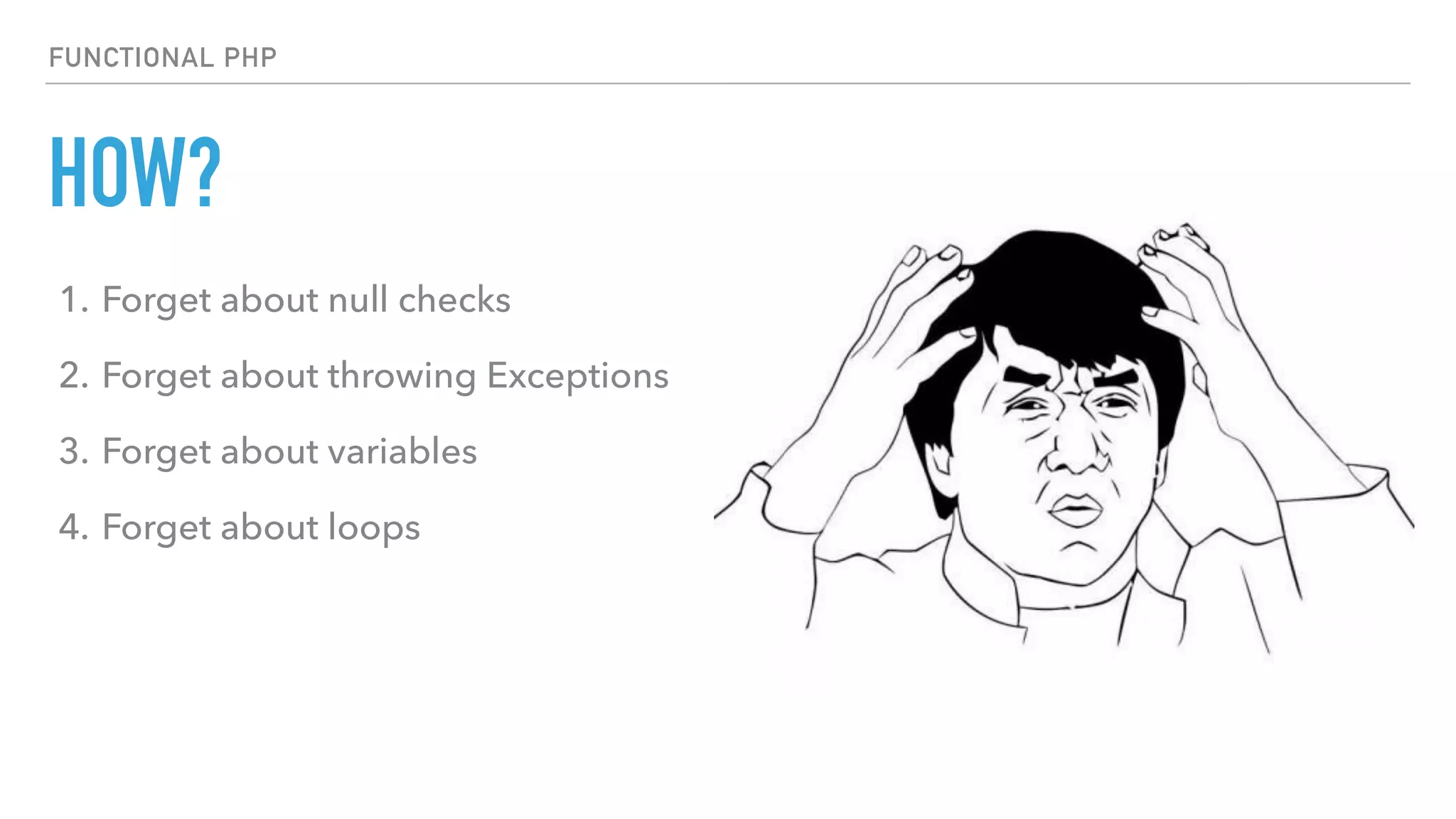
![HOW?
$data = [1,2,3,4,5];
$result = [];
foreach ($data as $key => $value) {
$result[$key] = $value * 2;
}
$data = array_map(function (int $value): int {
return $value * 2;
}, $data);
$data = array_filter($data, function (int $value): bool {
return $value % 2 === 0;
});
$data = array_reduce($data, function (int $prev, int $value): int {
return $prev + $value;
}, 0);
return $data;
FUNCTIONAL PHP
4. Forget about loops](https://image.slidesharecdn.com/functional-php-170704125315/75/Elements-of-Functional-Programming-in-PHP-32-2048.jpg)
![HOW?
use PhpSlangCollectionParallelListCollection;
return ParallelListCollection::of([1,2,3,4,5])
->map(function (int $value): int {
return $value * 2;
})
->filter(function (int $value): bool {
return $value % 2 === 0;
})
->fold(0, function (int $prev, int $value): int {
return $prev + $value;
});
FUNCTIONAL PHP
4. Forget about loops
Use Collection instead](https://image.slidesharecdn.com/functional-php-170704125315/75/Elements-of-Functional-Programming-in-PHP-33-2048.jpg)
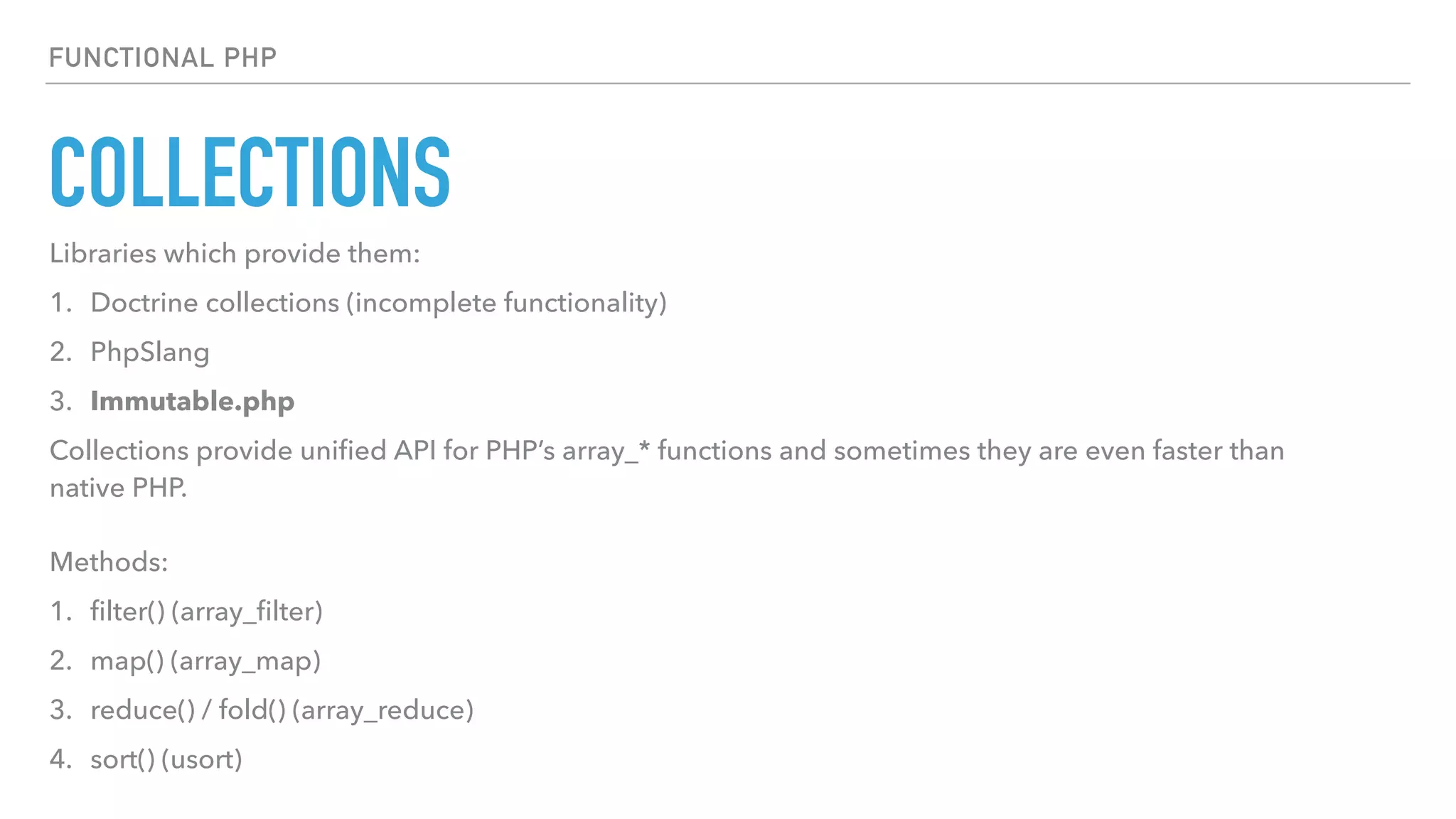
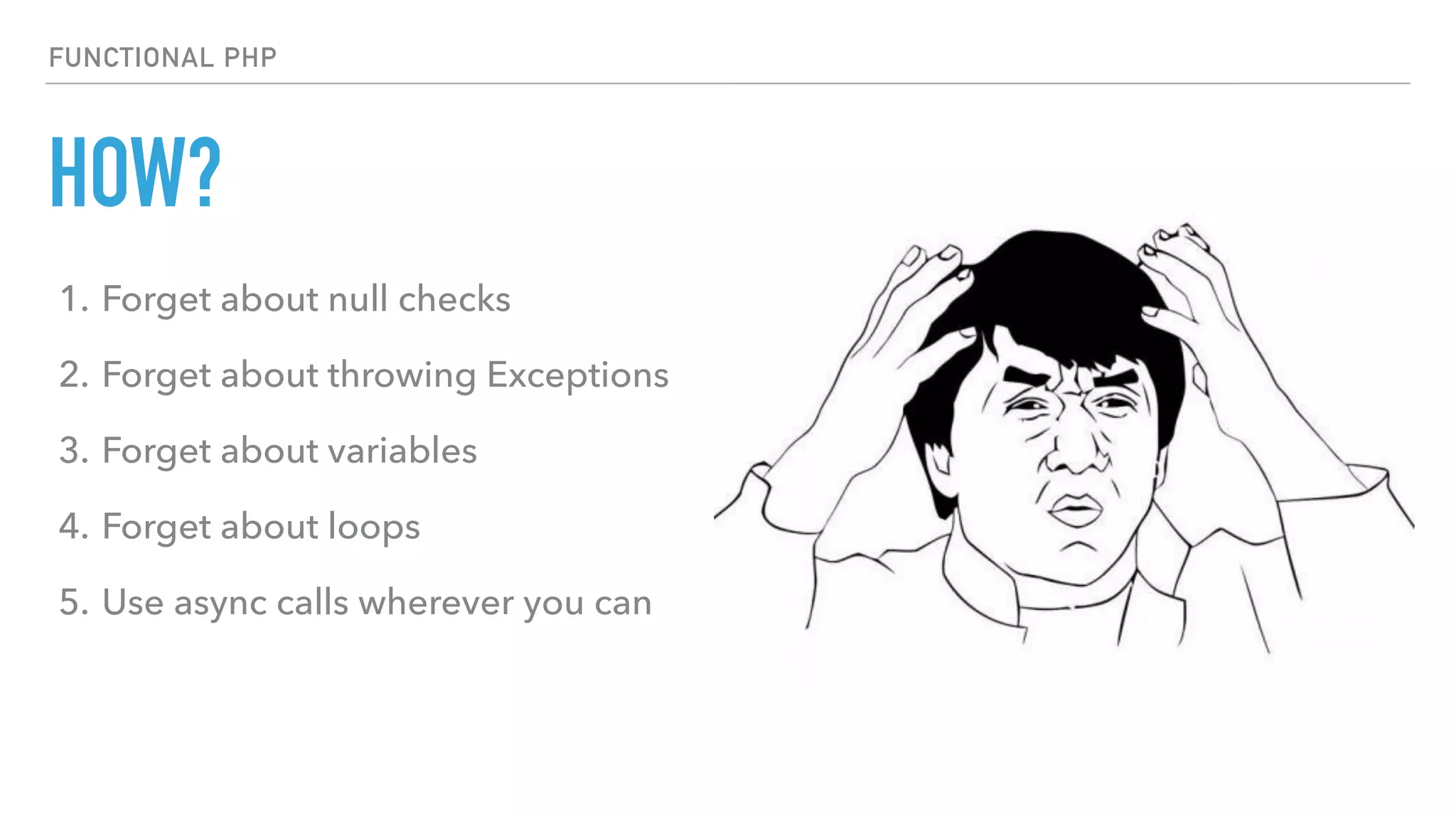
![HOW?
use function ClueReactBlockawaitAll;
/* use try-catch because ReactPHP's awaitAll uses Exceptions to escape loop
and PhpSlang's Future monad is not ready yet */
try {
$argumentsArray = awaitAll([
$this->getStatus($valuesArray[‘status']),
$this->getIdea($valuesArray['idea']),
$this->getUserFromToken(),
$valuesArray['reason'] ?? null
], LoopFactory::create());
return new Right($argumentsArray);
} catch (NotFoundHttpException $e) {
return new Left($e);
}
FUNCTIONAL PHP
5. Use async calls wherever you can](https://image.slidesharecdn.com/functional-php-170704125315/75/Elements-of-Functional-Programming-in-PHP-36-2048.jpg)
